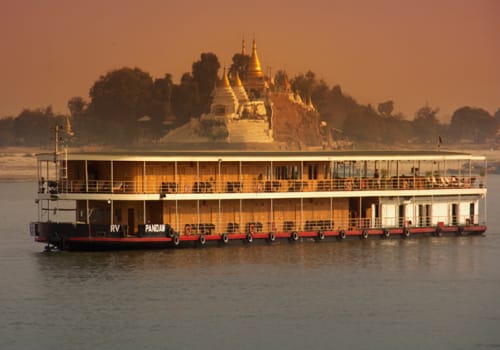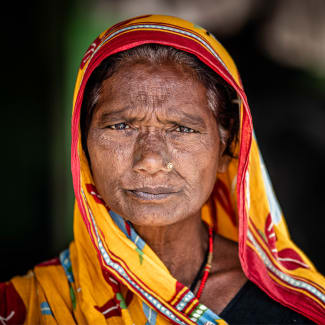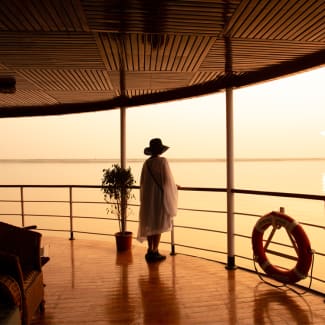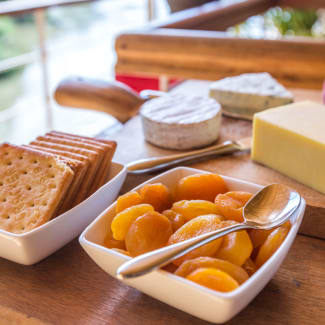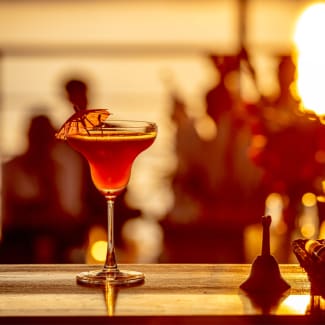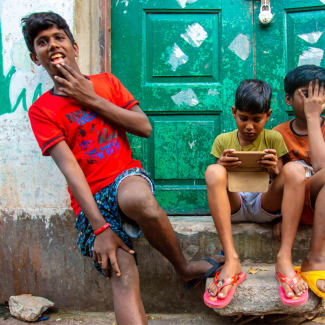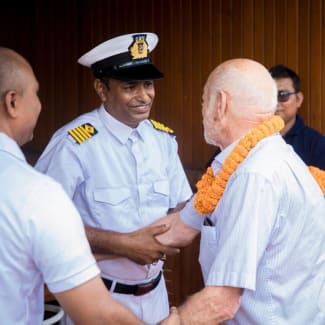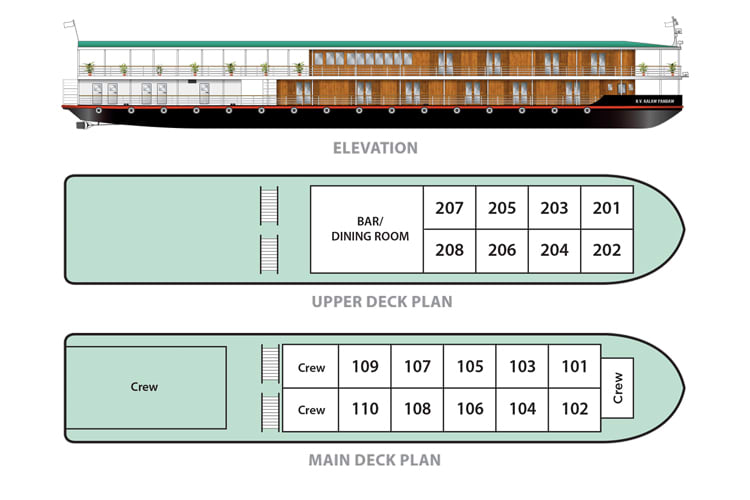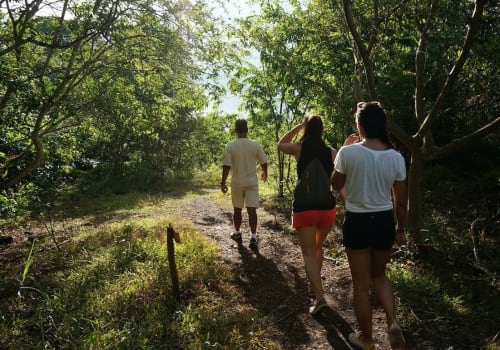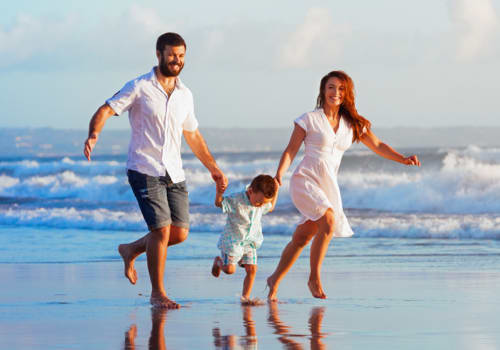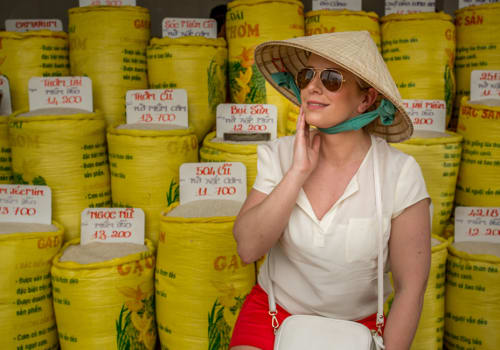Overview
Like her twin sister ship Kindat, the Kalaw Pandaw was originally built and launched in Yangon in 2014 and boasts an ultra light, shallow draft design ideal for sailing the silty waters of the River Ganges’ lower stretches along the Hooghly River, and an elegant air reminiscent of the bygone days of the British Raj.
The Vessel
Despite her 36 passenger capacity, the double-decked ship doesn’t feel crowded at all, indeed the boat features one of the highest passenger space ratios on India’s rivers. Her two ample decks mean there is lots of outdoor deck space to enjoy, and her 18 cabins—10 main deck cabins and 8 upper deck cabins— are all generously sized, each measuring 170 square feet (16 square meters) and include plenty of closet space and under-bed storage, kimonos and slippers, spa-branded amenities, yoga mats and panoramic French windows.
Quite literally named after the historic paddle steamer PS Kalaw that was launched in 1917 and sunk in 1942 in the War—her owner witnessed the salvaging of the Kalaw in 1998 and managed to acquire her name plate and bell, the former of which the vessel now features—she is no longer sports a paddle or steam power, but still resembles upscale versions of the colonial-style ships of the past, all decked out in teak and brass, and her Sun Deck does come aptly adorned in steamer chairs, the perfect spot to settle in with an afternoon G&T and watch the world float by.
She also features a guest relation desk, library with contemporary and classic literature, and a flexible bistro space offering passengers indoor (air-conditioned) or outdoor dining depending on inclination, often prompted by the season. Breakfast and lunch are semi buffet-style, while dinners are served and often themed, all prepared by the master chef who heads an experienced international culinary team.
The Journey
A range of journeys from Kolkata take visitors on voyages through the rich history and lush countryside of West Bengal to discover places that the average traveler wouldn’t ordinarily get to see. Meandering through some of the prettiest parts of deepest India, stop off to walk through mustard fields and mango orchards, explore sleepy villages and traditional towns, and witness some of the most impressive temples and palaces this majestic country has to offer.
Off ship excursions and on board enrichment activities are all focused on engaging with the local culture, religious monuments and rich village life along the banks of one of the world’s most sacred and culturally significant rivers. Take a rickshaw ride to see a unique Shiva temple with concentric rings made up of 108 lesser shrines, visit a brass-working village and history-changing battlefield, learn of the Hare Krishna movement and its connections to Henry Ford, explore the tiger-rich Sundarbans, and so much more.
An elegant ship with great attention to detail and interesting cultural experiences, not to mention a generous policy of waiving single supplements on several select sailings throughout the year, it’s no wonder the vessel is as popular with solo passengers and groups of odd-number size as it is with intrepid couples. For all who step aboard the RV Kalaw Pandaw, an eye-opening exploration of rural India along the lower Ganges’ River Hooghly awaits.
Itineraries & Prices
All itineraries are subject to change due to seasonal weather conditions (and resultant variations in river and tributary water levels) affecting accessibility to locations. Thus navigation routes, times and excursions may need to be modified at the cruise captain’s or your guide's discretion.
Embarkation
AM & PM: Transfer from your hotel or airport in Kolkata to embark and sail at noon. Sail past the old Danish colony of Serampore to Barrackpore to land and take a walk through the cantonment - past the Semaphore Tower, Government House, the Temple of Fame and Flagstaff House.
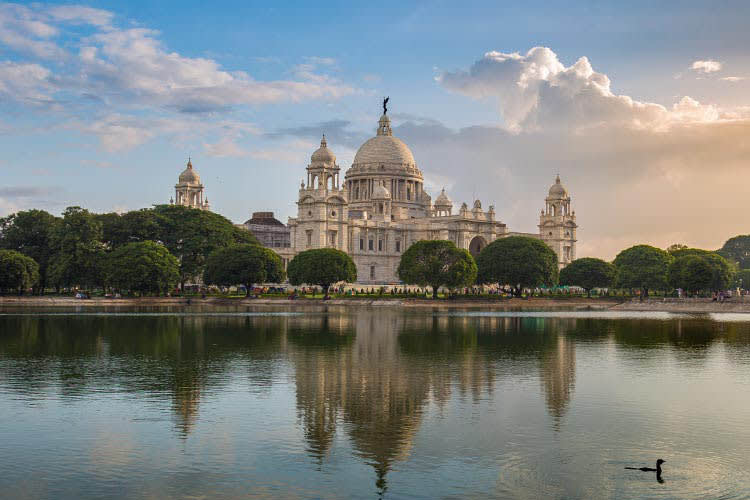
Chandernagore
AM & PM: Continue sailing upstream to Chandernagore, a French possession until 1950. Visit the 18th century church and Dupleix’s House, erstwhile Governor-General of French India.
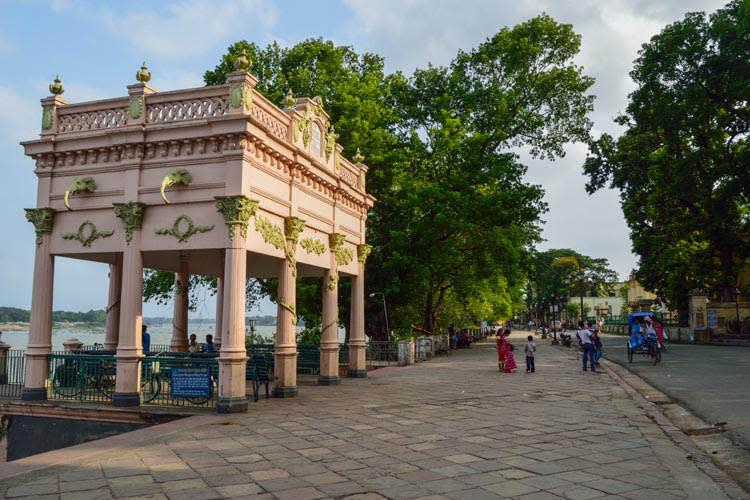
Kalna
AM: After breakfast sail upstream and land at the country town of Kalna and take rickshaws to see a group of some of Bengal’s most attractive terracotta temples, as well as the unique Shiva temple with concentric rings made up of 108 lesser shrines.
PM: Sail on through the night to a mooring near Matiari.

Mayapur
AM & PM: Explore the village of Mayapur, the headquarters of the ISKCON movement with a new temple comparable in size to the Vatican and largely funded by Alfred B. Ford, the great grandson of car maker Henry Ford. Meet Krishna followers and walk through the pilgrims’ bazaar.
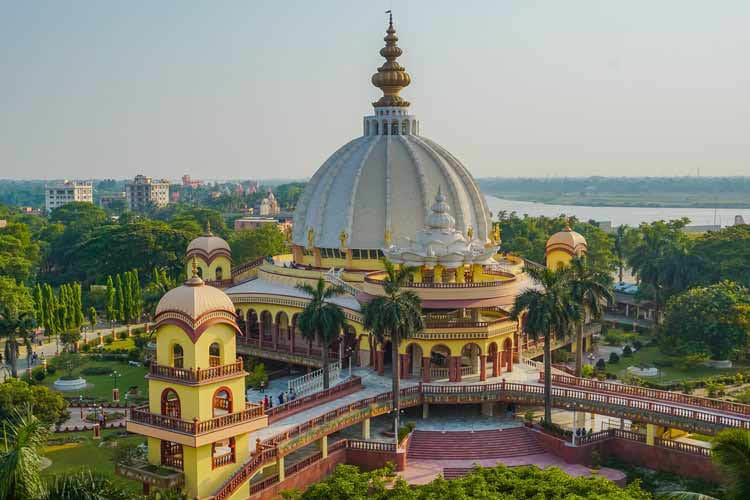
Matiari
AM & PM: Visit the brass-working village of Matiari, a charming riverside village. Interact with the locals of Matiari and witness the whole primitive process of beating out brass water pots and other vessels. Continue cruising upstream and time permitting visit the battlefield of Plassey where, in 1757, Robert Clive, the Commander-in-Chief of British India, defeated Siraj-ud-Daulah, the last independent Nawab of Bengal, to change the course of Indian history. Moor close to Murshidabad for the night.
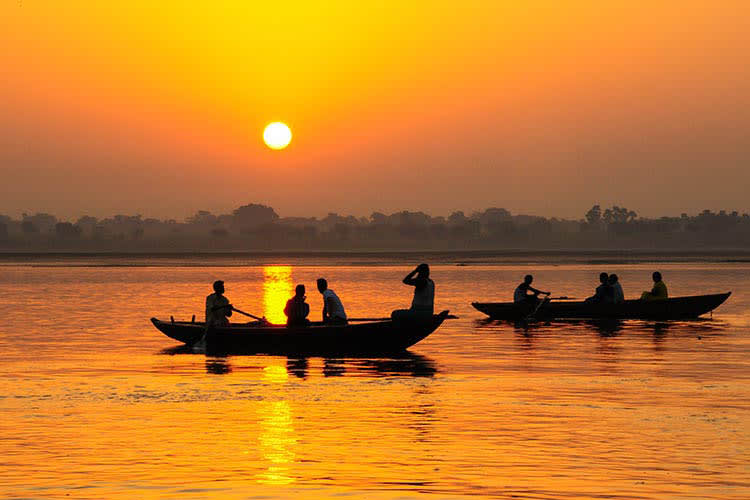
Murshidabad
AM: This morning, walk to the Khushbagh, a peaceful Mughal-style Garden that encloses the tombs of Siraj-ud-Daulah – the last independent Nawab of Bengal – and his family. Continue a little way upstream to where the great Hazarduari Palace dominates the waterfront. Built by an English architect in 1837, the palace hosts an extensive collection of pictures, china, weapons and other objects. Carry on visiting the great Katra Mosque and Nashipara Palace before driving out to see the Katgola Palace. Built in classical Georgian style by rich local merchants, Katgola Palace represents the other side of the coin of the 'White Mughal' period when English and Indian cultures came close to fusion.
PM: Moor overnight on the riverbank across from town.

Ajimganj-Farakkka
AM & PM: Continue up the Hoogly which transforms into a charming waterway twisting and turning between banks lined with mustard fields and mango orchards. Morning walk through the fields of the delightfully sleepy village of Baranagar to visit its three gorgeous miniature terracotta temples. This is rural India at its most idyllic. Visit the Jain temples at Azimganj before continuing on to the Farakka barrage.
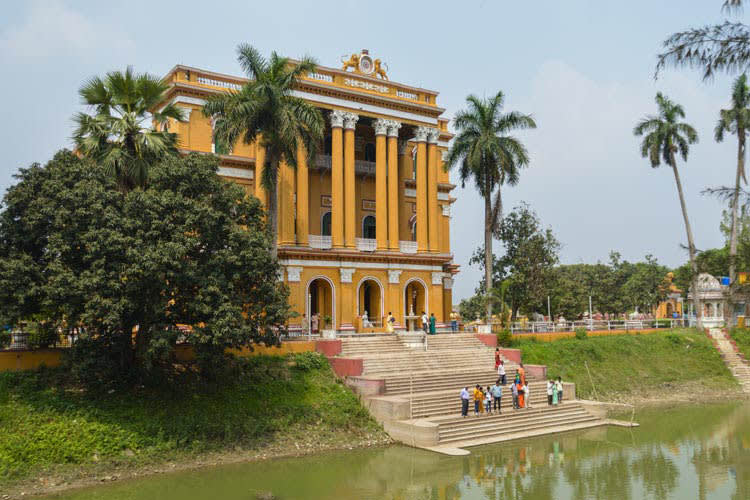
Disembarkation
AM: After breakfast, disembark and receive a group transfer to your hotel or the train station in Farakka for your train journey back to Kolkata.

Embarkation
AM & PM: Join your Pandaw ship in the afternoon following your train journey from Kolkata. For those arriving of their own accord, please arrive to the ship docked at Bamuha no earlier than 2pm. Be welcomed aboard your Pandaw by our crew and enjoy evening entertainment onboard before cocktails and dinner.
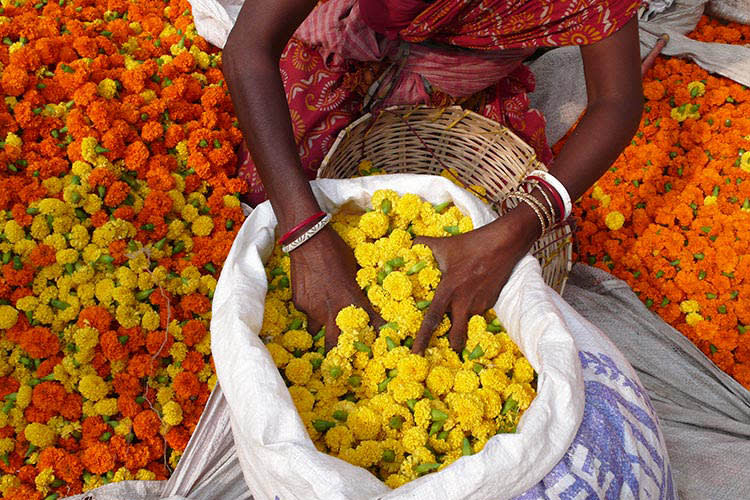
Murshidabad
AM: After breakfast, take a walk through the fields of the delightfully sleepy village of Baranagar to visit its three gorgeous miniature terracotta temples. This is rural India at its most idyllic. Visit the Jain temples at Azimganj before continuing our voyage downstream.
PM: In the afternoon we enjoy a city tour of Murshidabad, visiting the great Katra Mosque and Nashipara Palace before driving out to see the Katgola Palace. Built in classical Georgian style by rich local merchants, Katgola Palace represents the other side of the coin of the 'White Mughal' period when English and Indian cultures came close to fusion.

Khushbagh
AM: This morning, walk to the Khushbagh, a peaceful Mughal-style garden that encloses the tombs of Siraj-ud-Daulah – the last independent Nawab of Bengal – and his family. Continue a little way upstream to where the great Hazarduari Palace dominates the waterfront. Built by an English architect in 1837, the palace hosts an extensive collection of pictures, china, weapons and other objects.
PM: Continue sailing downstream in the afternoon with onboard activities and wildlife watching on the sun deck.

Matiari
AM: In the morning we visit the battlefield of Plassey where, in 1757, Robert Clive, the Commander-in-Chief of British India, defeated Siraj-ud-Daulah, the last independent Nawab of Bengal, to change the course of Indian history.
PM: After lunch we continue downstream to the brass-working village of Matiari, a charming riverside village. Interact with the locals of Matiari and witness the whole primitive process of beating out brass water pots and other vessels.

Mayapur
AM & PM: Explore the village of Mayapur, the headquarters of the ISKCON movement with a new temple comparable in size to the Vatican and largely funded by Alfred B. Ford, the great grandson of car maker Henry Ford. Meet Krishna followers and walk through the pilgrims’ bazaar.
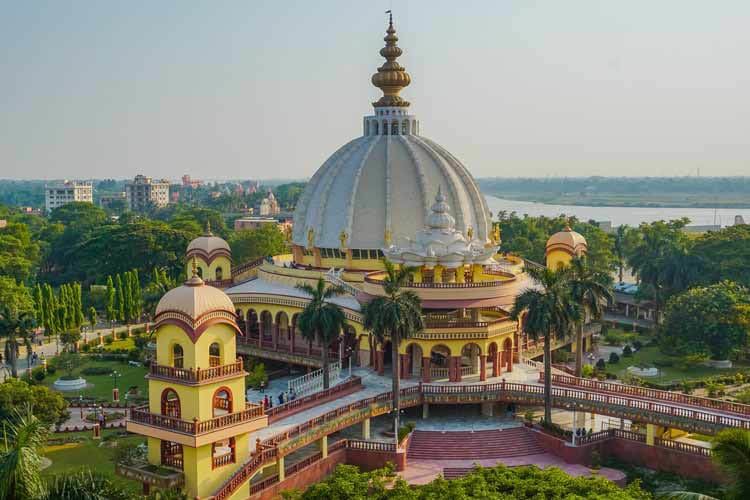
Kalna
AM & PM: After breakfast visit the country town of Kalna. Take rickshaws to see a group of some of Bengal’s most attractive terracotta temples, as well as the unique Shiva temple with concentric rings made up of 108 lesser shrines.

Chandernagore
AM: Continue sailing upstream to Chandernagore, a French possession until 1950. Visit the 18th century church and Dupleix’s House, erstwhile Governor-General of French India. In the afternoon we sail toward Barrackpore and take a walk through the cantonment - past the Semaphore Tower, Government House, the Temple of Fame and Flagstaff House.
PM: Enjoy a farewell dinner with your crew as we moor in Mayapur for the night.
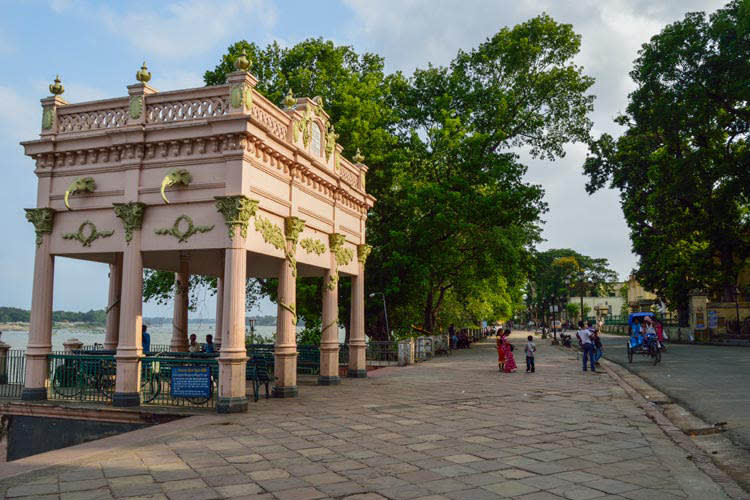
Disembarkation
AM: After breakfast transfer to your hotel or airport for your onward journey.

Embarkation
PM: Transfer from your Kolkata hotel or the airport to embark by 1200 for lunch on board followed by a city orientation tour with a walk around Dalhousie Square, the prominent Writers’ Building the former HQ of the East India Company, and step inside St John’s Church with its painting of The Last Supper. Experience the serenity of the Victoria Memorial with a stroll through the splendid gardens. Admire the domed white marble hall built in memory of Queen Victoria and discover Victorian memorabilia and British Raj-era paintings. We have lunch in a local restaurant before enjoying leisure for the rest of the afternoon, on return to ship welcome cocktails and briefing.
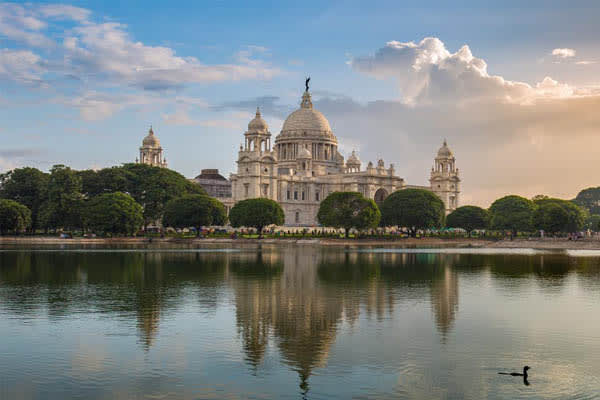
Kolkata Immersion
AM: Early morning visit to the vibrant flower market, one of Asia’s largest. Wind through the mountains of marigolds and jasmine and watch as people buy flowers for temple offerings and prayers. Stroll down to the river to witness a traditional Akhara. Step inside and watch men of all ages practice a traditional form of wrestling known as kushti. We return to ship for breakfast.
PM: Afternoon visit to the Indian Museum and then free time in the nearby New Market before returning to the ship for dinner.
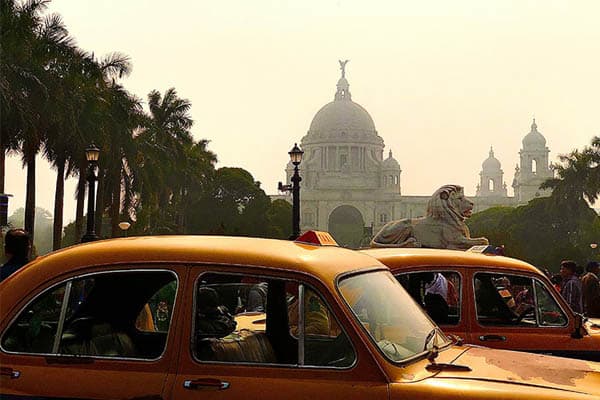
Kolkata-Serempore
AM: Morning visit to the market and sail at noon to cross the Hooghli to the old Danish colony of Serampore, founded in 1676, and visit the tavern, church, and museum.
PM: After, cruise past the iconic landmarks of Kolkata: the Tower, Government House, the Temple of Fame, and Flagstaff House.

Kalna
AM: After breakfast, embark on a scenic cruise upstream, arriving at the charming country town of Kalna. Take a rickshaw ride to explore a group of Bengal's most impressive terracotta temples, culminating in a visit to the unique 18th-century Shiva Temple. This remarkable temple is adorned with concentric rings of 108 smaller shrines, creating a truly awe-inspiring sight.
PM: Sail on through the night, mooring near Maitari.
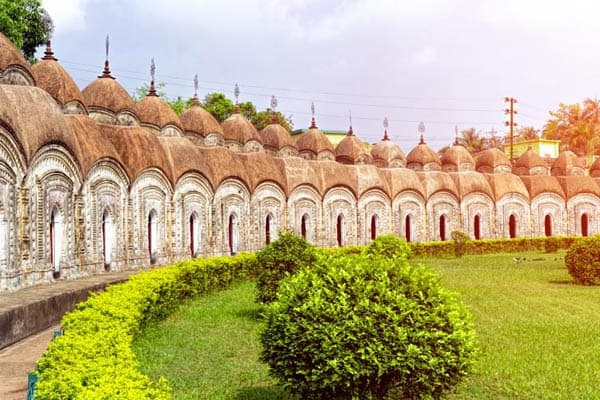
Matiari
AM: The fascinating process of crafting intricate brass water pots and other vessels. Time permitting, venture to the historic battlefield of Plassey. Here, in the pivotal year of 1757, Robert Clive, the Commander-in-Chief of the British East India Company, decisively defeated Siraj-ud-Daulah, the last independent Nawab of Bengal, marking a turning point in Indian history.
PM: Moor close to Murshidabad for the night.
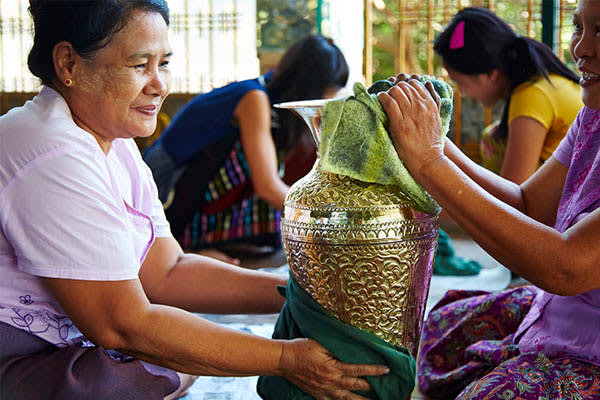
Murshidabad
AM: Embark on a walk to the Khushbagh, a peaceful Mughal-style Garden that encloses the tombs of Siraj-ud-Daulah, the last independent Nawab of Bengal, and his family. Continue upstream to witness the grandeur of Hazarduari Palace, an architectural masterpiece built by an English architect in 1837. Explore its opulent interiors, showcasing a fascinating collection of paintings, china, weapons, and other artifacts. Next, visit the magnificent Katra Mosque and the impressive Nashipara Palace, a testament to the wealth and influence of the local merchants during the "White Mughal" era – a period of cultural exchange between English and Indian influences. Finally, we visit Katgola Palace, an exquisite example of Georgian architecture built by wealthy local merchants, further highlighting the unique blend of cultures that flourished during this era.
PM: Moor overnight on the riverbank across from town.

Baranagar-Ajimganj
AM & PM: Sail upstream along the Hoogly River, a picturesque waterway winding through a landscape of lush mustard fields and vibrant mango orchards. Disembark in Baranagar, a charming village, and enjoy a leisurely walk through its serene countryside. Visit three exquisite miniature terracotta temples, dating back to the 17th and 18th centuries, a testament to the region's rich artistic heritage. Continue sailing downstream, stopping at Azimganj to explore the intricately carved Jain temples. This itinerary offers a glimpse into the idyllic rural life of Bengal and its fascinating cultural and architectural heritage.
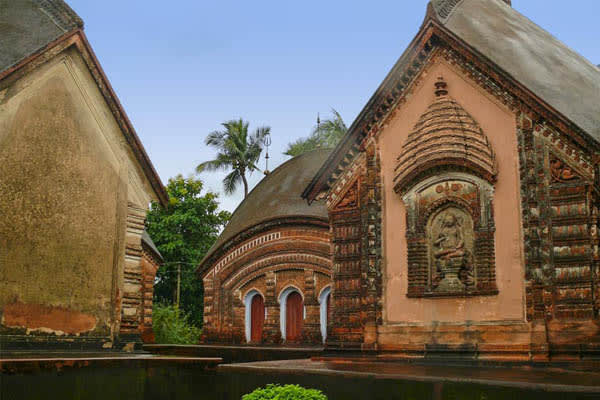
Mayapur
AM & PM: Immerse yourself in the spiritual heart of the Hare Krishna movement at Mayapur, its global headquarters. Explore the magnificent ISKCON temple complex, a modern marvel comparable in size to the Vatican and generously funded by Alfred B. Ford, the great-grandson of automotive pioneer Henry Ford. Interact with devotees and wander through the vibrant pilgrims' bazaar.
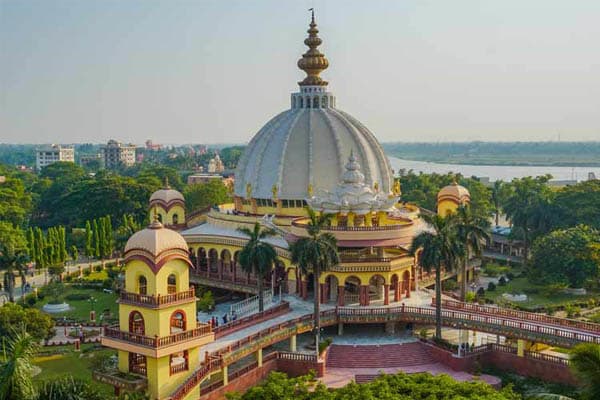
Chandernagore - Hooghly
AM & PM: Continue sailing downstream before landing to visit the imposing Imambara at Hooghly. With verses from the Quran written on its walls, the Imambara is an opportunity to step back in time and relive a slice of Islamic history in Bengal. Sail past the old Dutch settlement of Chinsura to Chandernagore, a French possession until 1950. Visit the 18th-century church and Dupleix's House, erstwhile Governor-General of French India. Enjoy a TukTuk ride to the Hangseshwari Temple before sailing into the night to a mooring near Kolkata.
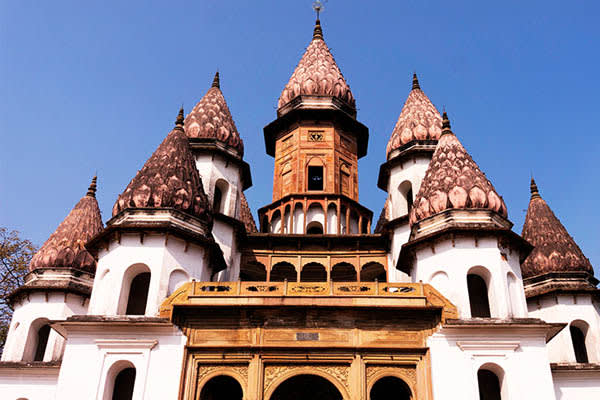
Disembarkation
AM: Early morning moor in Kolkata Port and transfer to hotels or airport. Passengers with night flights may stay in their cabins and are at leisure during the day with a lunch served on board and a light supper prior to departure.
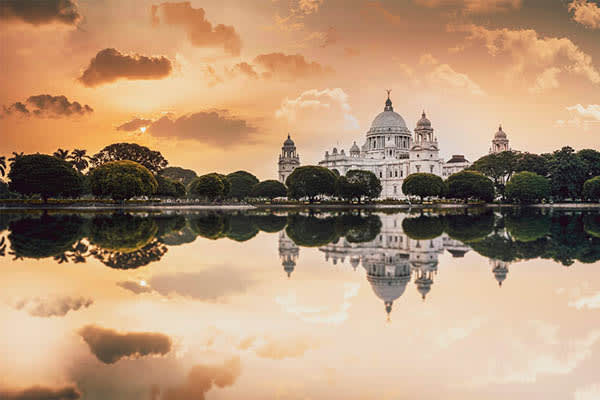
Embarkation
AM & PM: Transfer from your hotel or airport in Kolkata to embark and sail at noon. Sail past the old Danish colony of Serampore to Barrackpore to land and take a walk through the cantonment - past the Semaphore Tower, Government House, the Temple of Fame and Flagstaff House.
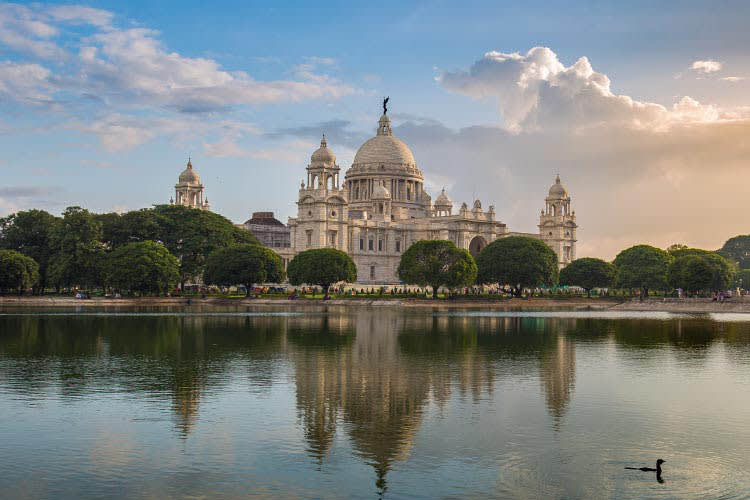
Chandernagore
AM & PM: Continue sailing upstream to Chandernagore, a French possession until 1950. Visit the 18th century church and Dupleix’s House, erstwhile Governor-General of French India.
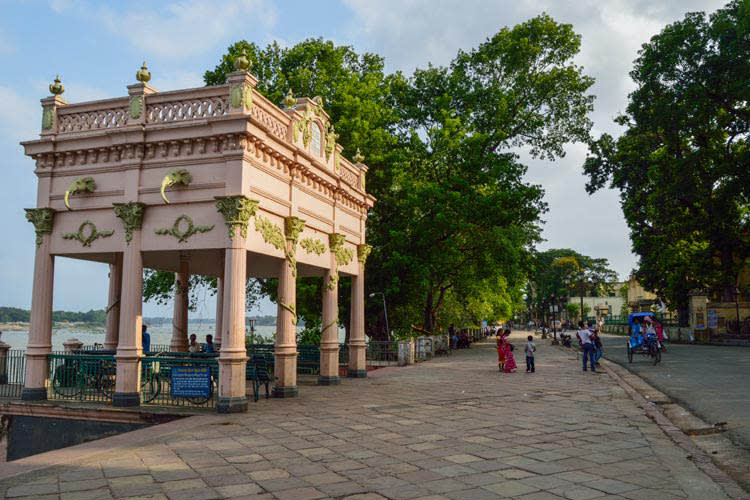
Kalna
AM: After breakfast sail upstream and land at the country town of Kalna and take rickshaws to see a group of some of Bengal’s most attractive terracotta temples, as well as the unique Shiva temple with concentric rings made up of 108 lesser shrines.
PM: Sail on through the night to a mooring near Matiari.
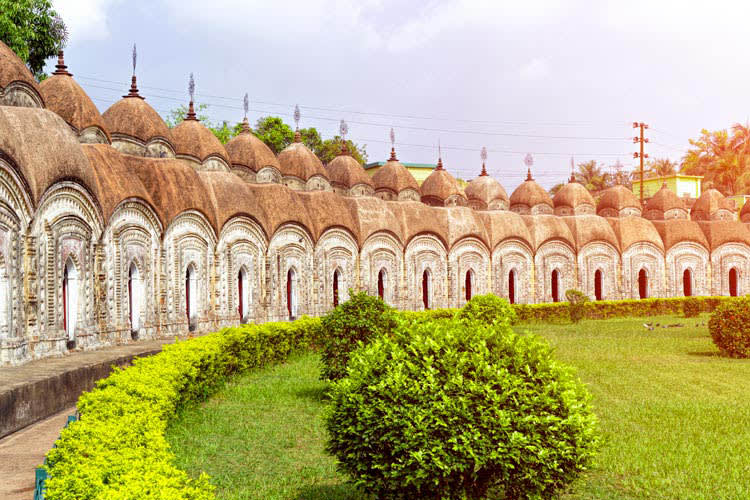
Mayapur
AM & PM: Explore the village of Mayapur, the headquarters of the ISKCON movement with a new temple comparable in size to the Vatican and largely funded by Alfred B. Ford, the great grandson of car maker Henry Ford. Meet Krishna followers and walk through the pilgrims’ bazaar.
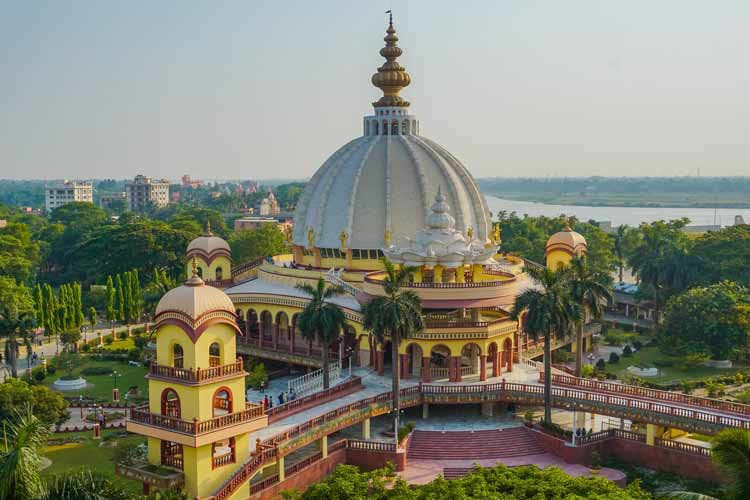
Matiari
AM: Visit the brass-working village of Matiari, a charming riverside village. Interact with the locals of Matiari and witness the whole primitive process of beating out brass water pots and other vessels. Continue cruising upstream and time permitting visit the battlefield of Plassey where, in 1757, Robert Clive, the Commander-in-Chief of British India, defeated Siraj-ud-Daulah, the last independent Nawab of Bengal, to change the course of Indian history.
PM: Moor close to Murshidabad for the night.

Murshidabad
AM: This morning, walk to the Khushbagh, a peaceful Mughal-style garden that encloses the tombs of Siraj-ud-Daulah – the last independent Nawab of Bengal – and his family. Continue a little way upstream to where the great Hazarduari Palace dominates the waterfront. Built by an English architect in 1837, the palace hosts an extensive collection of pictures, china, weapons and other objects. Carry on to visit the great Katra Mosque and Nashipara Palace before driving out to see the Katgola Palace. Built in classical Georgian style by rich local merchants, Katgola Palace represents the other side of the coin of the 'White Mughal' period when English and Indian cultures came close to fusion.
PM: Moor overnight on the riverbank across from town.
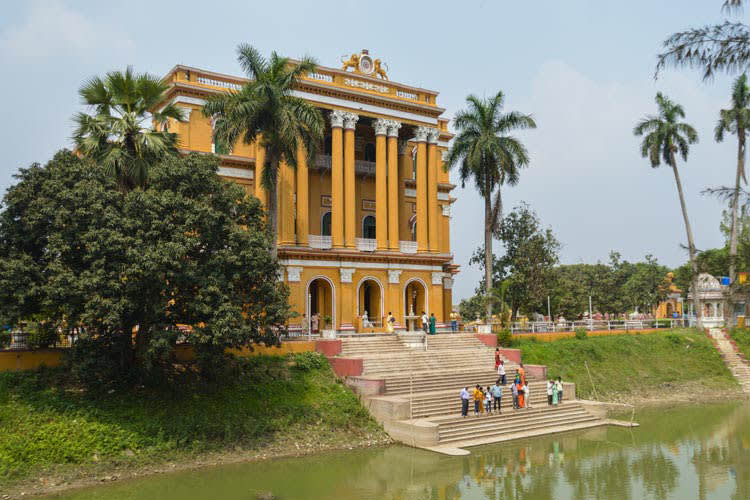
Ajimganj-Farakkka
AM & PM: Continue up the Hoogly which transforms into a charming waterway twisting and turning between banks lined with mustard fields and mango orchards. Morning walk through the fields of the delightfully sleepy village of Baranagar to visit its three gorgeous miniature terracotta temples. This is rural India at its most idyllic. Visit the Jain temples at Azimganj before continuing on to the Farakka Barrage.

Farakka - Rajmahal
AM & PM: Today pass through the Farraka Barrage onto the Ganges proper. In the afternoon we explore the quaint town of Rajmahal.

Sailing
AM &PM: We sail up the mighty Ganges River toward the confluence with the Koshi river. Stop along the way for a short village walk and enjoy our onboard entertainment.
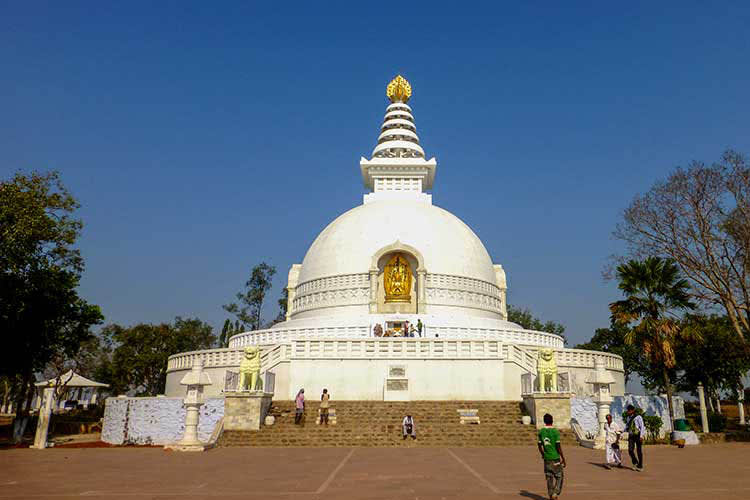
Bhagalpur - Sultanganj
AM: We sail early morning toward Bhaglapur, a hub of silk production. We witness the silk weaving and explore this small town before returning to the ship for lunch.
PM: In the afternoon we visit Sultanganj with its pair of great granite rocks, one crowned with a mosque and the other a small temple dating from the 16th century.
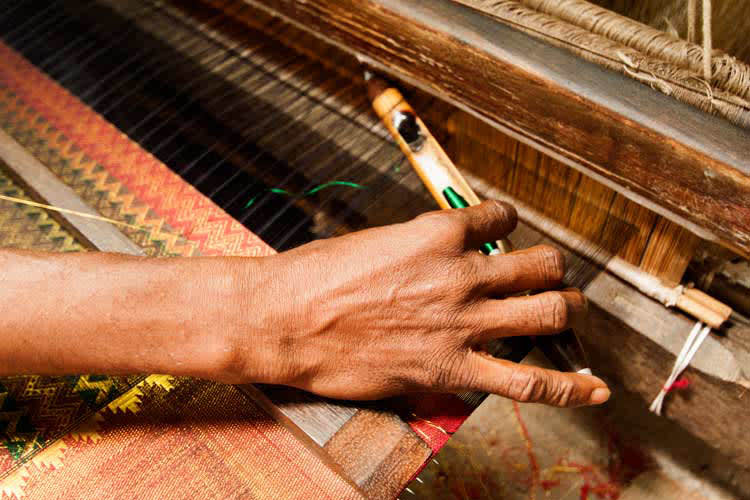
Munger
AM & PM: Munger is now a large and industrialised city but has an interesting history. In 1762, Mir Qasim, the Nawab of Bengal, shifted his capital from Murshidabad to Munger, and established a firearms manufacturing centre here. Explore the Mughal fort, East India Company cemetery and step inside the Bihar School of Yoga founded in 1964 by Satyananda Saraswati. One of the leading yoga schools in the country. The institution has developed yogic techniques through a synthesis of traditional yogic, vedantic and tantric practices and contemporary health science.
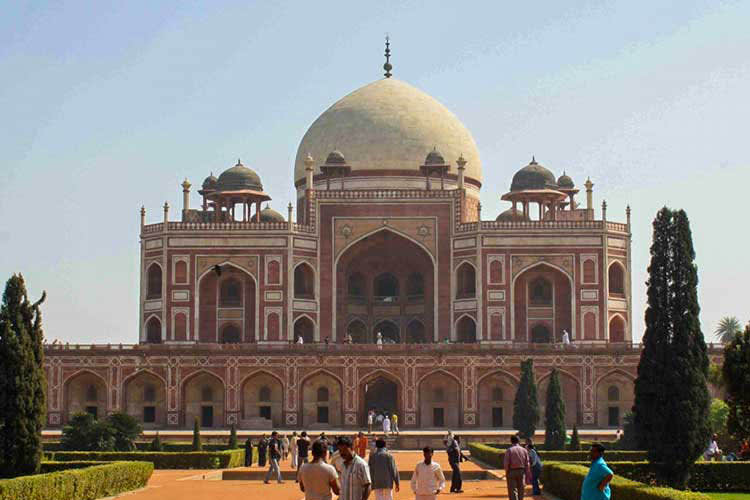
Mokama
AM & PM: Stop at Mokama, once home to Jim Corbett the naturalist and protector of the Indian tigers. Surrounded by farmlands, Mokama has the second hightest production of lentils in the country. Learn about the freedom fighters from Mokama such as Lalldin Saheb, whose during the freedom struggle was sentenced to jail during the British rule.
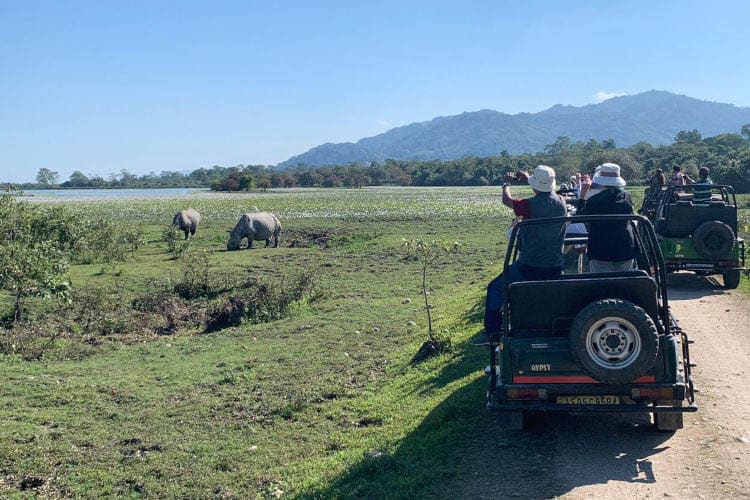
Barh
AM & PM: Explore Barh, a town famous for Hindu ritual cremation at Urmanath and the Alakhnath Temple.
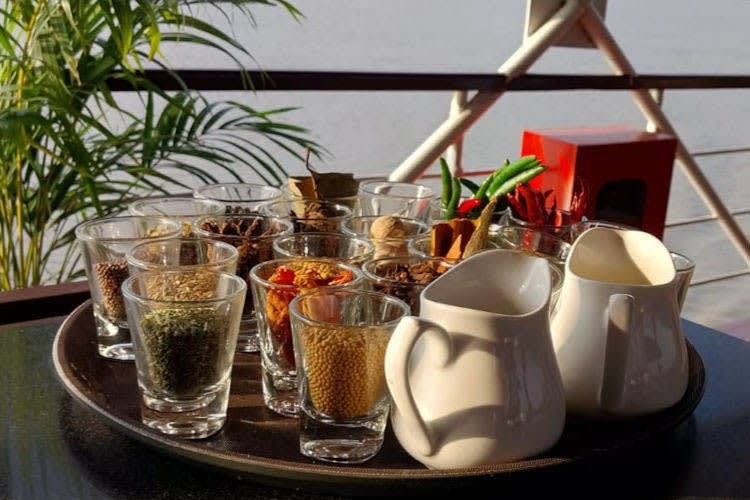
Patna
AM: Enjoy a city tour of Patna, capital of Bihar state including a visit to The Golghar, a large stupa styled granary built in 1786.
PM: Farewell dinner with your crew.
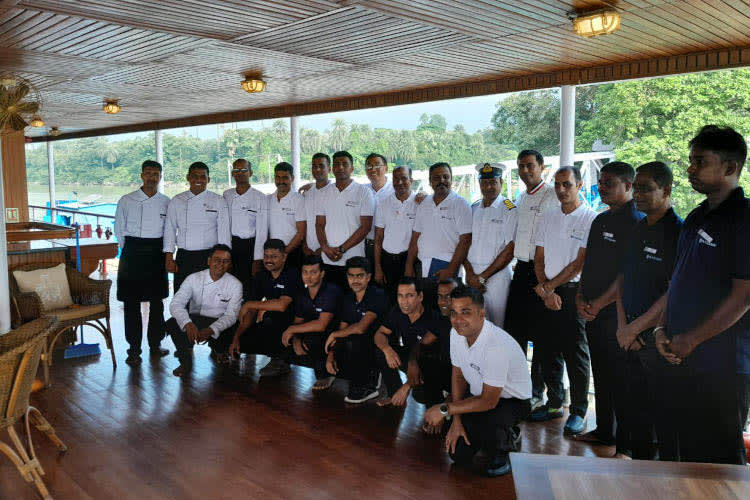
Disembarkation
AM: Disembark your vessel ready and transfer to Patna station for your 1st class train to Varanasi. Upon arrival to Varanasi, transfer to your hotel or the airport.

Embarkation
AM & PM: Depart Varanasi in the morning and head to the train station for your journey to Patna where we meet your vessel. Relax onboard and meet your crew and fellow passengers for the next 14 nights.
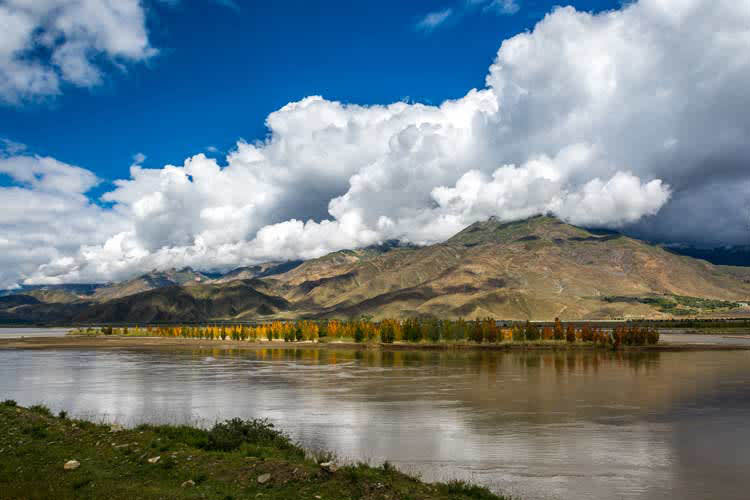
Barh
AM: Morning city tour of Patna including a visit to The Golghar, a large stupa styled granary built in 1786.
PM: Sail downstream during lunch before arriving to Barh, a town famous for Hindu ritual cremation at Urmanath and the Alakhnath Temple.

Mokama
AM & PM: Stop at Mokama, once home to Jim Corbett the naturalist and protector of the Indian tigers. Surrounded by farmlands, Mokama has the second hightest production of lentils in the country. Learn about the freedom fighters from Mokama such as Lalldin Saheb, whose during the freedom struggle was sentenced to jail during the British rule.

Munger
AM & PM: Munger is now a large and industrialised city but has an interesting history. In 1762, Mir Qasim, the Nawab of Bengal, shifted his capital from Murshidabad to Munger, and established a firearms manufacturing centre here. Explore the Mughal fort, East India Company cemetery and step inside the Bihar School of Yoga founded in 1964 by Satyananda Saraswati. One of the leading yoga schools in the country. The institution has developed yogic techniques through a synthesis of traditional yogic, vedantic and tantric practices and contemporary health science.

Sultanganj
AM & PM: Continue to Jahanigra Island, a place of pilgrimage with many rock carvings in high relief dating from the eighth century depicting aspects of Siva and Vishnu. In the evening moor off Sultanganj, with its pair of great granite rocks, one crowned with a mosque and the other a small temple dating from the 16th century. In the afternoon land at Bhaglapur, a centre of silk production, and visit the 18th century mansion of the Collector, Augustus Cleveland.
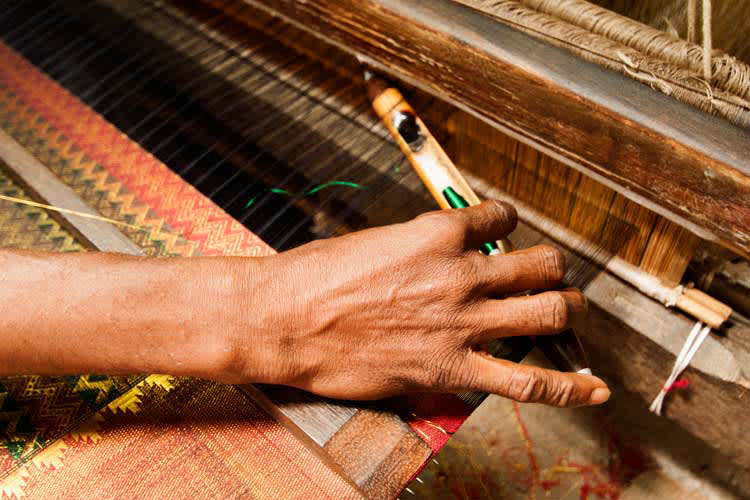
Bateshwarsthan
AM & PM: Passing the confluence of the Kosi river that flows down from Nepal, moor at the pretty town of Bateshwarsthan to uncover the 8th century Buddhist site of Vikramshila, one of the two most important centres of learning in India during the Pala Empire, along with Nalanda.

Farakka
AM & PM: Continue sailing along the Ganges before stopping at Rajmahal, a quaint town on the banks of the Ganges for an afternoon walk.

Farakka Barrage
AM & PM: Depart Rajmahal and sail down to cross the Farakka barrage, entering the Hooghly River. In the afternoon take a gentle walk through a local village.

Murshidabad
AM: After breakfast, take a walk through the fields of the delightfully sleepy village of Baranagar to visit its three gorgeous miniature terracotta temples. This is rural India at its most idyllic. Visit the Jain temples at Azimganj before continuing our voyage downstream.
PM: In the afternoon we enjoy a city tour of Murshidabad, visiting the great Katra Mosque and Nashipara Palace before driving out to see the Katgola Palace. Built in classical Georgian style by rich local merchants, Katgola Palace represents the other side of the coin of the 'White Mughal' period when English and Indian cultures came close to fusion.

Kushbagh
AM: This morning, walk to the Khushbagh, a peaceful Mughal-style garden that encloses the tombs of Siraj-ud-Daulah – the last independent Nawab of Bengal – and his family. Continue a little way upstream to where the great Hazarduari Palace dominates the waterfront. Built by an English architect in 1837, the palace hosts an extensive collection of pictures, china, weapons and other objects.
PM: Continue sailing downstream in the afternoon with onboard activities and wildlife watching on the sun deck.

Matiari
AM: In the morning we visit the battlefield of Plassey where, in 1757, Robert Clive, the Commander-in-Chief of British India, defeated Siraj-ud-Daulah, the last independent Nawab of Bengal, to change the course of Indian history.
PM: After lunch we continue downstream to the brass-working village of Matiari, a charming riverside village. Interact with the locals of Matiari and witness the whole primitive process of beating out brass water pots and other vessels.

Mayapur
AM & PM: Explore the village of Mayapur, the headquarters of the ISKCON movement with a new temple comparable in size to the Vatican and largely funded by Alfred B. Ford, the great grandson of car maker Henry Ford. Meet Krishna followers and walk through the pilgrims’ bazaar.

Kalna
AM & PM: After breakfast visit the country town of Kalna. Take rickshaws to see a group of some of Bengal’s most attractive terracotta temples, as well as the unique Shiva temple with concentric rings made up of 108 lesser shrines.
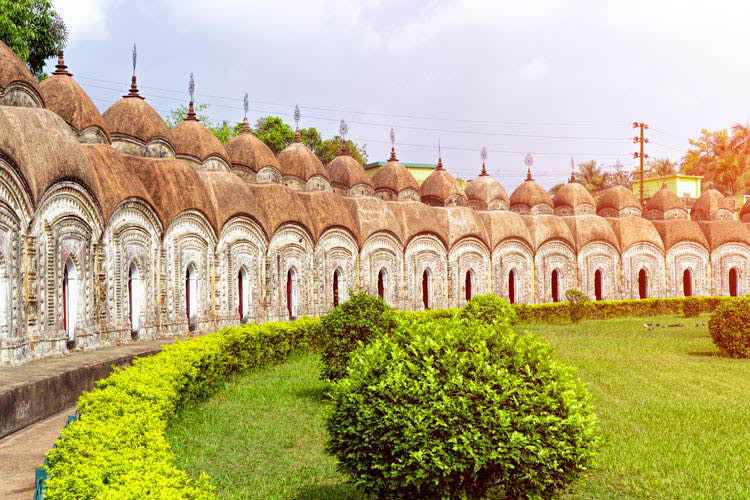
Chandernagore
AM: Continue sailing upstream to Chandernagore, a French possession until 1950. Visit the 18th century church and Dupleix’s House, erstwhile Governor-General of French India.
PM: In the afternoon we sail toward Barrackpore and take a walk through the cantonment - past the Semaphore Tower, Government House, the Temple of Fame and Flagstaff House. Enjoy a farewell dinner with your crew as we moor in Kolkata for the night.

Disembarkation
AM: After breakfast transfer to your hotel or airport for your onward journey.
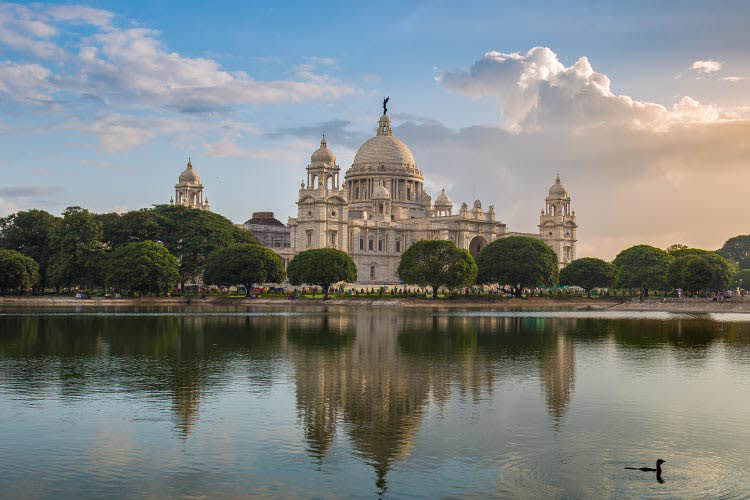
Embarkation
PM: Join your ship in the afternoon following your train journey from Kolkata. For those arriving of their own accord, please arrive to the ship docked at Bamuha no earlier than 2pm. Be welcomed aboard your Pandaw by our crew and enjoy evening entertainment onboard before cocktails and dinner.

Murshidabad
AM: After breakfast, take a walk through the fields of the delightfully sleepy village of Baranagar to visit its three gorgeous miniature terracotta temples. This is rural India at its most idyllic. Visit the Jain temples at Azimganj before continuing our voyage downstream.
PM: In the afternoon we enjoy a city tour of Murshidabad, visiting the great Katra Mosque and Nashipara Palace before driving out to see the Katgola Palace. Built in classical Georgian style by rich local merchants, Katgola Palace represents the other side of the coin of the 'White Mughal' period when English and Indian cultures came close to fusion.
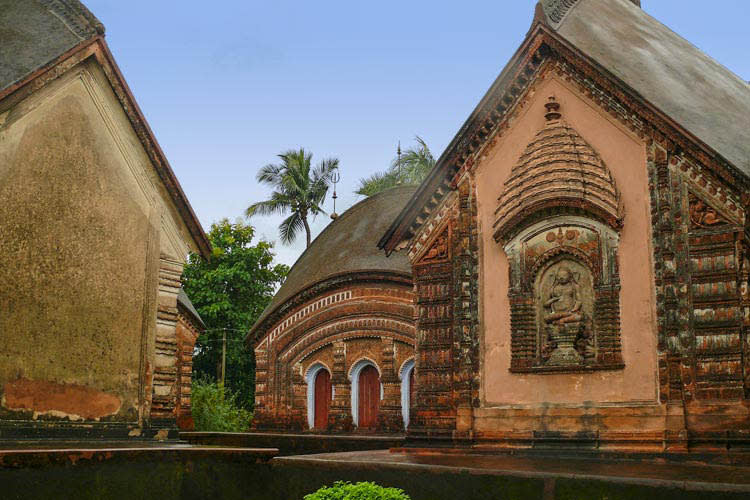
Kushbagh
AM: This morning, walk to the Khushbagh, a peaceful Mughal-style garden that encloses the tombs of Siraj-ud-Daulah – the last independent Nawab of Bengal – and his family. Continue a little way upstream to where the great Hazarduari Palace dominates the waterfront. Built by an English architect in 1837, the palace hosts an extensive collection of pictures, china, weapons and other objects.
PM: Continue sailing downstream in the afternoon with onboard activities and wildlife watching on the sun deck.
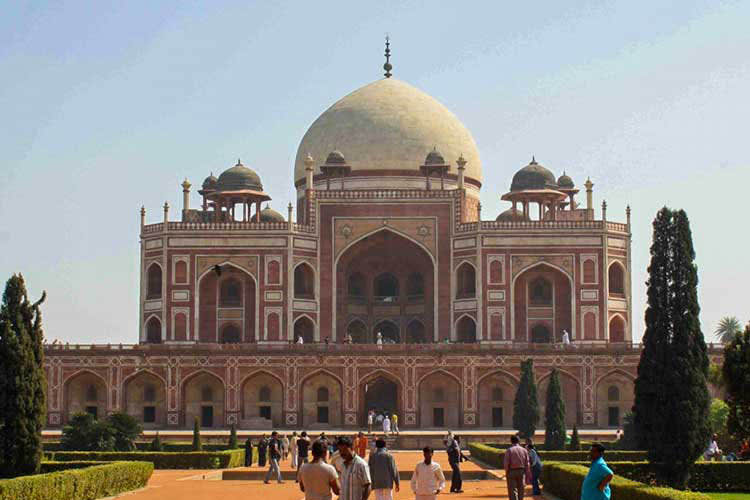
Matiari
AM: In the morning we visit the battlefield of Plassey where, in 1757, Robert Clive, the Commander-in-Chief of British India, defeated Siraj-ud-Daulah, the last independent Nawab of Bengal, to change the course of Indian history.
PM: After lunch we continue downstream to the brass-working village of Matiari, a charming riverside village. Interact with the locals of Matiari and witness the whole primitive process of beating out brass water pots and other vessels.

Mayapur
AM & PM: Explore the village of Mayapur, the headquarters of the ISKCON movement with a new temple comparable in size to the Vatican and largely funded by Alfred B. Ford, the great grandson of car maker Henry Ford. Meet Krishna followers and walk through the pilgrims’ bazaar.
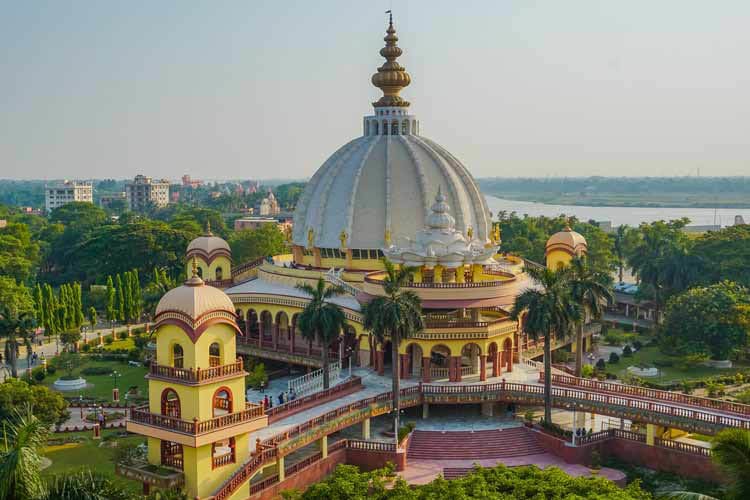
Kalna
AM & PM: After breakfast visit the country town of Kalna. Take rickshaws to see a group of some of Bengal’s most attractive terracotta temples, as well as the unique Shiva temple with concentric rings made up of 108 lesser shrines.

Chandernagore
AM: Continue sailing upstream to Chandernagore, a French possession until 1950. Visit the 18th century church and Dupleix’s House, erstwhile Governor-General of French India. In the afternoon we sail toward Barrackpore and take a walk through the cantonment - past the Semaphore Tower, Government House, the Temple of Fame and Flagstaff House.
PM: Enjoy a farewell dinner with your crew as we moor in Mayapur for the night.
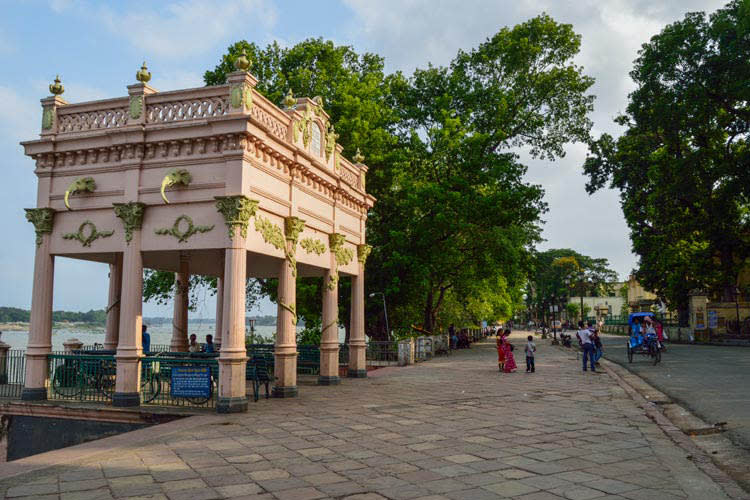
Kolkata - Guwahati
AM: Disembark the ship at 08:00 and transfer to the airport for your flight to Guwahati.
PM: On arrival transfer to ship and meet your crew for the next 7-nights and set sail upstream onto the Mighty Brahmaputra River.
Please note that due to water levels, religious festivals, and other situations beyond our control, it is occasionally necessary to change our embarkation / disembarkation jetty. This may result in a longer transfer times and may also require access to / from the ship via a smaller 'country boat.

Suragaon River Village
AM & PM: Today we stop at a local village consisting of migrant populations that have settled and been provided with official status by the government. Their charming village is the perfect place to learn about life along such a dramatically changeable river.
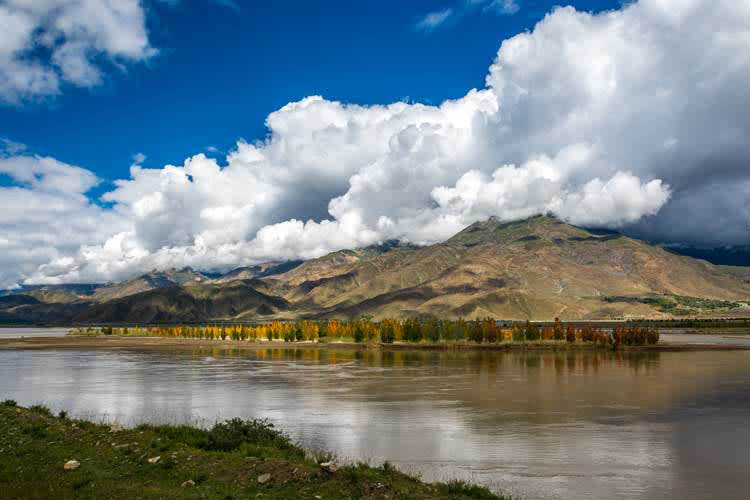
Silghat & Safari
AM: Setting sail early morning we reach Silghat, at the doorstep of Kaziranga National Park.
PM: We make our first venture into this park in the afternoon in search of the reserve’s most famous inhabitant, the Royal Bengal Tigers for which the park boasts the highest density of any place in the world. Tiger spotting is extremely rare but chances to see Kaziranga’s other famous inhabitants are abundant.
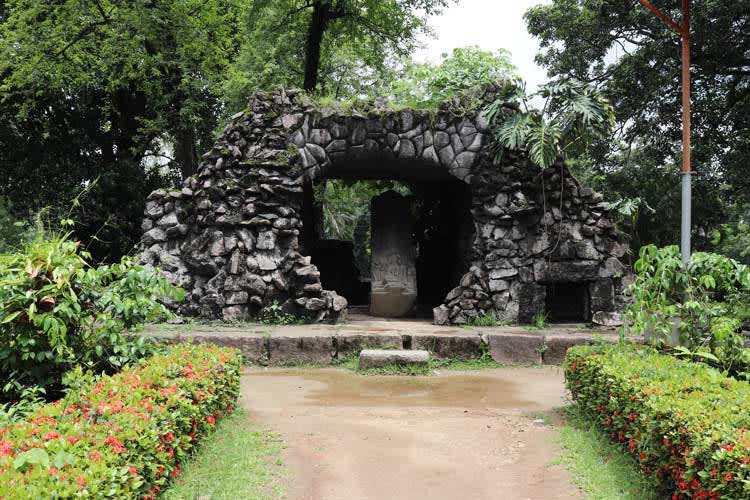
Kaziranga National Park
AM: We leave the ship in the early morning for our second Jeep safari into Kaziranga National Park. Mornings are the perfect time to spot the Indian One-Horned Rhinos, Buffalos, Elephants plus a host of birdlife, including hornbills and kingfishers. Following your safari, we visit a typical Assamese tea garden and learn about the process from bush to cup.
PM: After lunch onboard we sail downstream toward Tezpur and if time permits, visit Bamuni Hills, a 9th century temple complex that lies in ruins overlooking the town.
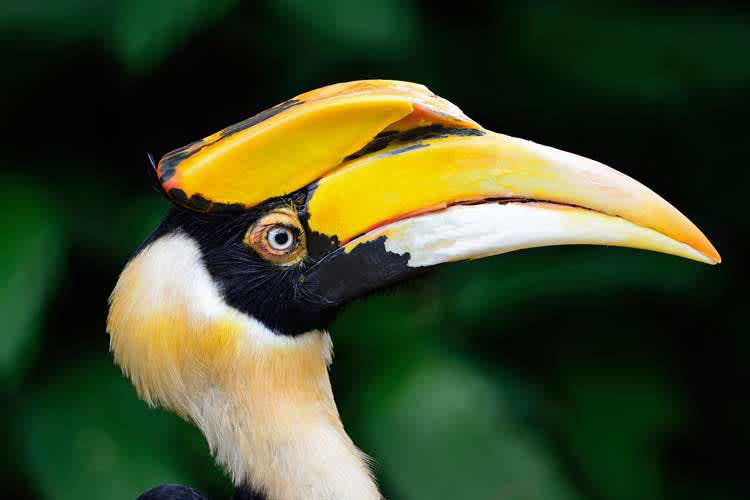
Nameri National Park
AM: After an early breakfast we head ashore and drive north toward the state of Arunachal Pradesh to explore our second national Park – Nameri National Park. Here we take a float trip down the Jia – Bhoreli River of around 2 hours and enjoy the abundant birdlife and breathtaking scenery backdropped by the Blue Hills in the Eastern Himalayan range.
PM: We return for lunch onboard and set sail downstream.

Mystical Mayang
AM & PM: Stepping ashore in Mayang, a sizeable village along the shores of the Brahmaputra, we learn about the history of magic and sorcery that was prevalent in the region. We visit the fascinating Mayang museum which explains how various mantras were used for anything from curing ailments to identifying a thief. We are then welcomed into the home of a local Mayang resident for a discussion and perhaps demonstration of some tricks.
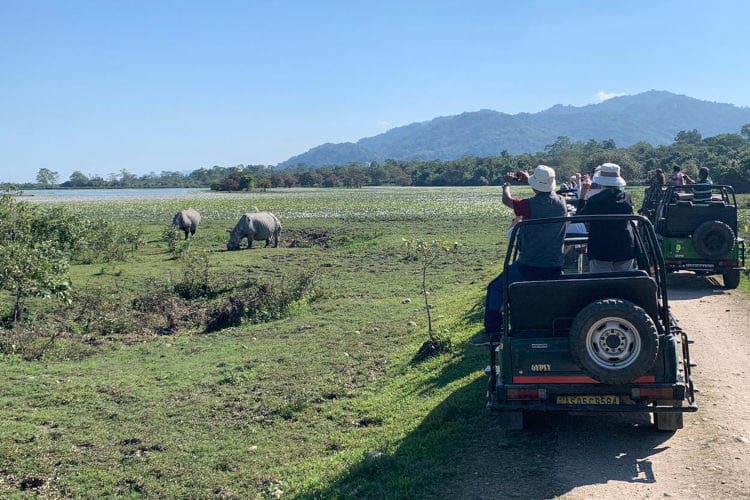
Sualkuchi Silk Village
AM & PM: Sualkuchi is a major centre for weaving in Assam. Here we learn about the entire silk making production from the cocoon, to spinning and weaving to make the typical saree worn by local women. There is a chance to buy some local silken souvenirs and experience a traditional folk dance before we return to the ship by electric rickshaw.
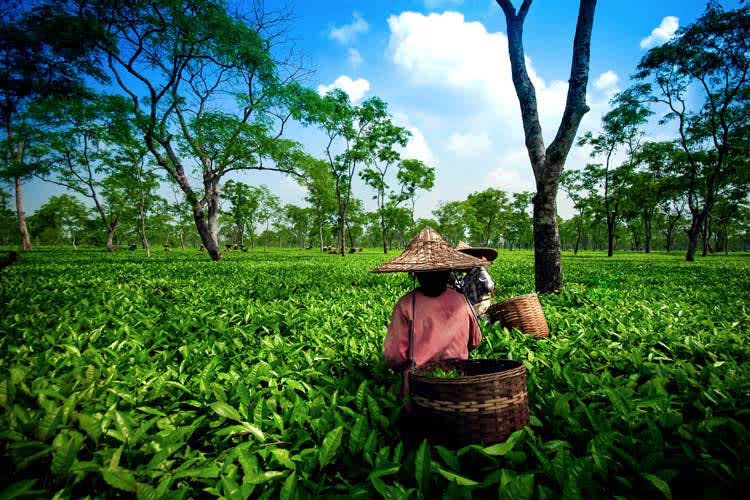
Disembarkation
AM: After breakfast, disembark the ship and transfer to city hotel or Guwahati airport for your onward journey.
Note: Disembark after breakfast and transfer to your hotel or Guwahati airport (15km / 30 min). Transfers can be arranged as per your flight details with the latest departure from the ship at 10am.
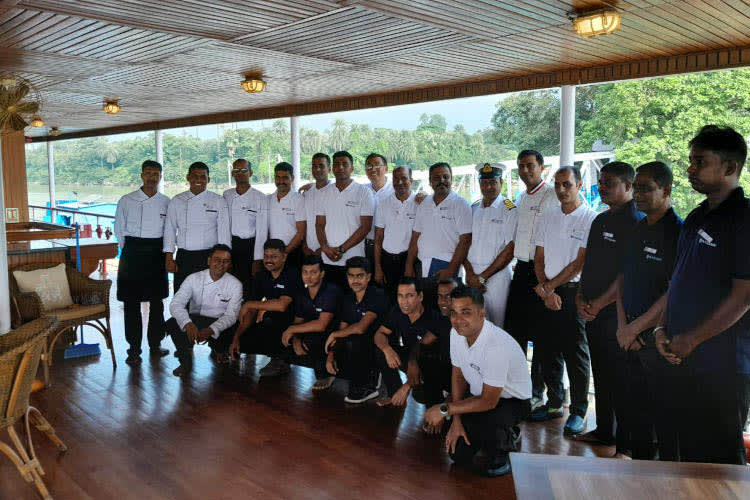
Embarkation
AM & PM: Depart Varanasi in the morning and head to the train station for your journey to Patna where we meet your Pandaw vessel. Relax onboard and meet your crew and fellow passengers for the next 14 nights.
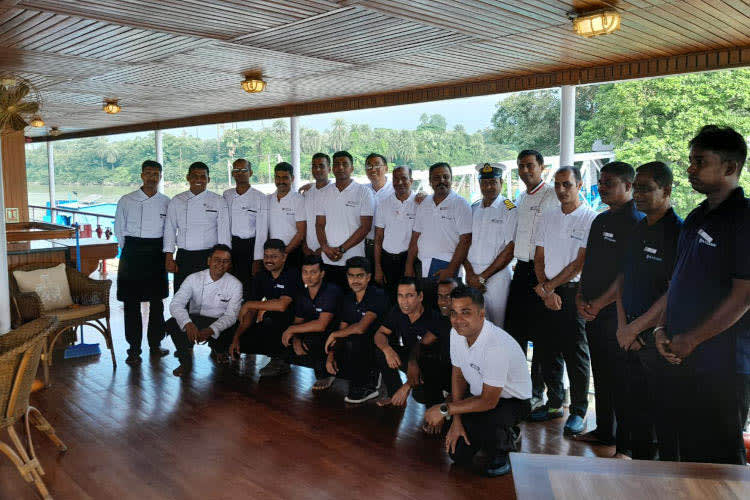
Barh
AM: Morning city tour of Patna including a visit to The Golghar, a large stupa styled granary built in 1786.
PM: Sail downstream during lunch before arriving to Barh, a town famous for Hindu ritual cremation at Urmanath and the Alakhnath Temple.
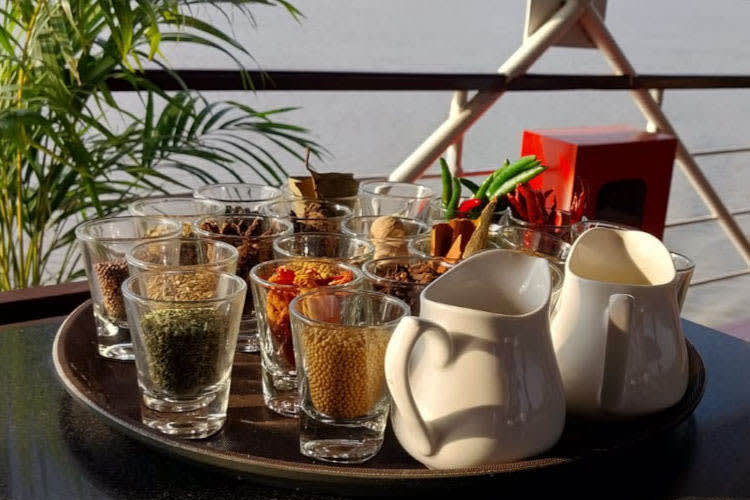
Mokama
AM & PM: Stop at Mokama, once home to Jim Corbett the naturalist and protector of the Indian tigers. Surrounded by farmlands, Mokama has the second hightest production of lentils in the country. Learn about the freedom fighters from Mokama such as Lalldin Saheb, whose during the freedom struggle was sentenced to jail during the British rule.
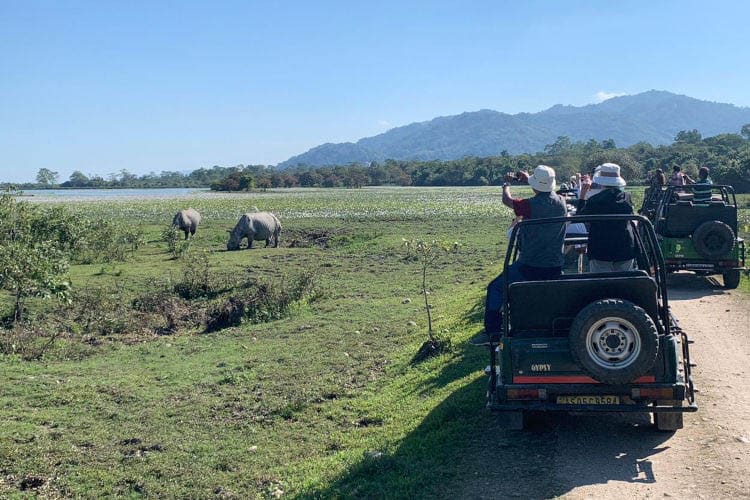
Munger
AM & PM: Munger is now a large and industrialised city but has an interesting history. In 1762, Mir Qasim, the Nawab of Bengal, shifted his capital from Murshidabad to Munger, and established a firearms manufacturing centre here. Explore the Mughal fort, East India Company cemetery and step inside the Bihar School of Yoga founded in 1964 by Satyananda Saraswati. One of the leading yoga schools in the country. The institution has developed yogic techniques through a synthesis of traditional yogic, vedantic and tantric practices and contemporary health science.
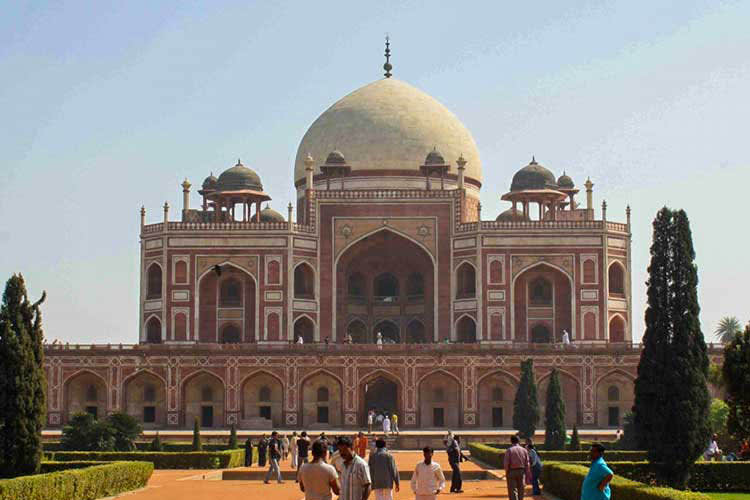
Sultanganj
AM: Continue to Jahanigra Island, a place of pilgrimage with many rock carvings in high relief dating from the eighth century depicting aspects of Siva and Vishnu. In the evening moor off Sultanganj, with its pair of great granite rocks, one crowned with a mosque and the other a small temple dating from the 16th century.
PM: In the afternoon land at Bhaglapur, a centre of silk production, and visit the 18th century mansion of the Collector, Augustus Cleveland.
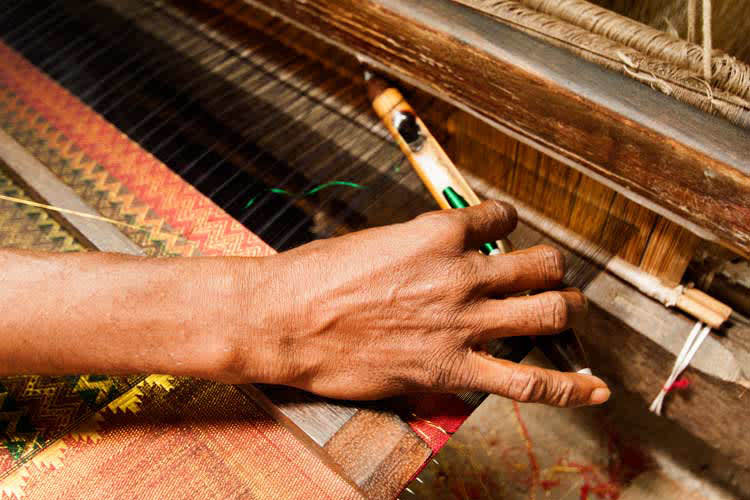
Bateshwarsthan
AM & PM: Passing the confluence of the Kosi river that flows down from Nepal, moor at the pretty town of Bateshwarsthan to uncover the 8th century Buddhist site of Vikramshila, one of the two most important centres of learning in India during the Pala Empire, along with Nalanda.
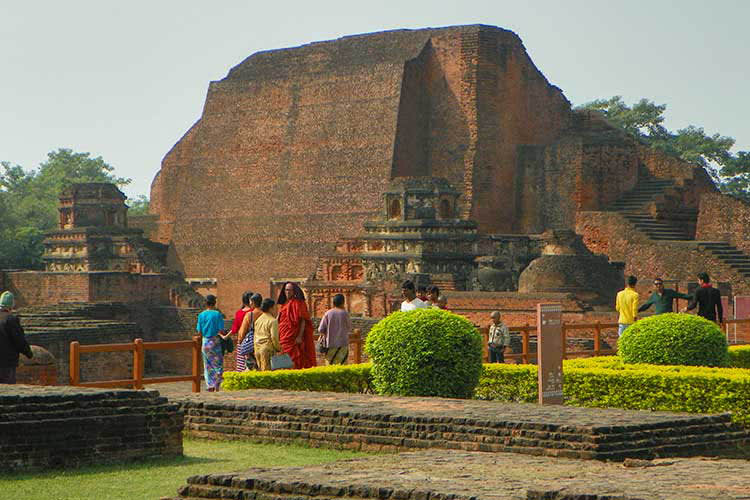
Farakka
AM & PM: Continue sailing along the Ganges before stopping at Rajmahal, a quaint town on the banks of the Ganges for an afternoon walk.
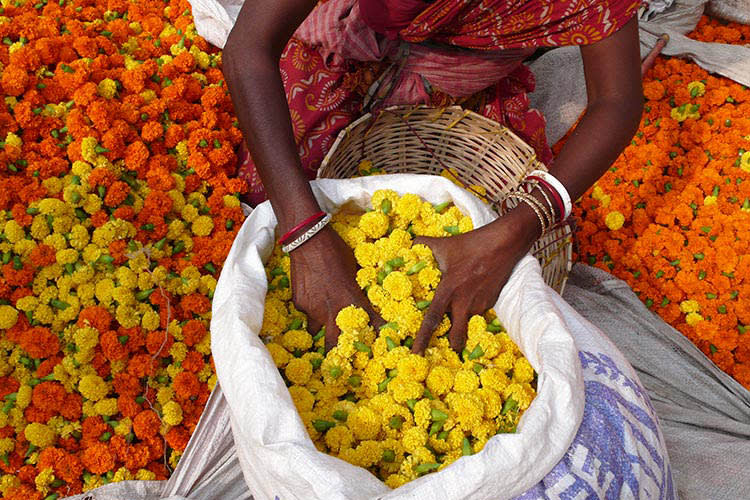
Farakka Barrage
AM: Depart Rajmahal and sail down to cross the Farakka barrage, entering the Hooghly River.
PM: In the afternoon take a gentle walk through a local village.
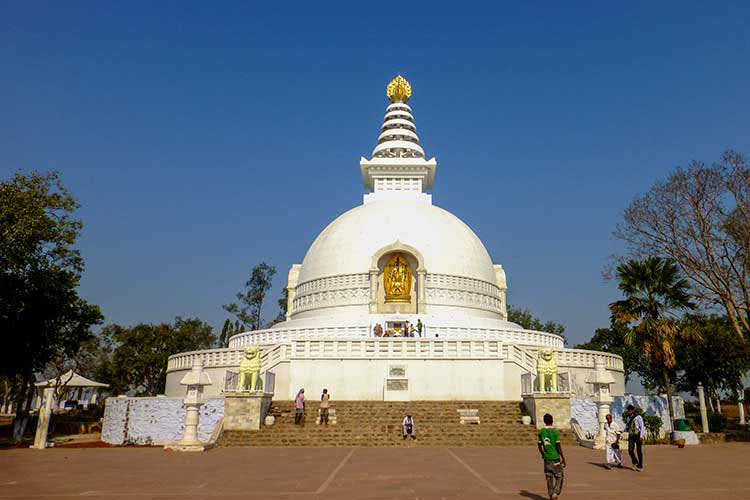
Murshidabad
AM: After breakfast, take a walk through the fields of the delightfully sleepy village of Baranagar to visit its three gorgeous miniature terracotta temples. This is rural India at its most idyllic. Visit the Jain temples at Azimganj before continuing our voyage downstream.
PM: In the afternoon we enjoy a city tour of Murshidabad, visiting the great Katra Mosque and Nashipara Palace before driving out to see the Katgola Palace. Built in classical Georgian style by rich local merchants, Katgola Palace represents the other side of the coin of the 'White Mughal' period when English and Indian cultures came close to fusion.
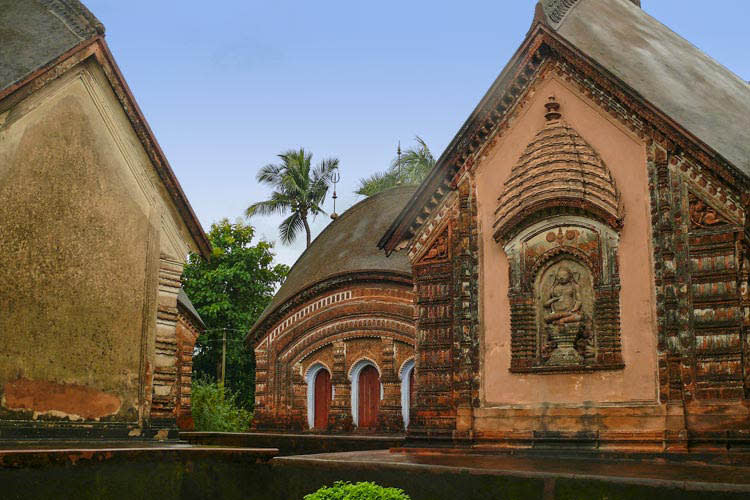
Kushbagh
AM: This morning, walk to the Khushbagh, a peaceful Mughal-style garden that encloses the tombs of Siraj-ud-Daulah – the last independent Nawab of Bengal – and his family. Continue a little way upstream to where the great Hazarduari Palace dominates the waterfront. Built by an English architect in 1837, the palace hosts an extensive collection of pictures, china, weapons and other objects.
PM: Continue sailing downstream in the afternoon with onboard activities and wildlife watching on the sun deck.
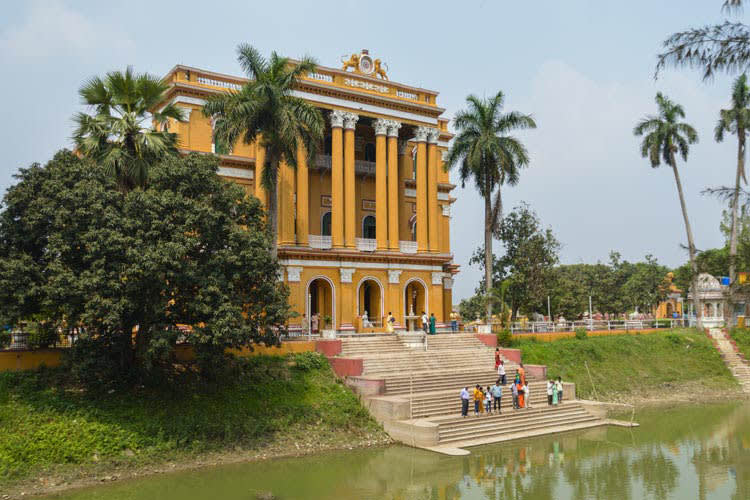
Matiari
AM: In the morning we visit the battlefield of Plassey where, in 1757, Robert Clive, the Commander-in-Chief of British India, defeated Siraj-ud-Daulah, the last independent Nawab of Bengal, to change the course of Indian history.
PM: After lunch we continue downstream to the brass-working village of Matiari, a charming riverside village. Interact with the locals of Matiari and witness the whole primitive process of beating out brass water pots and other vessels.
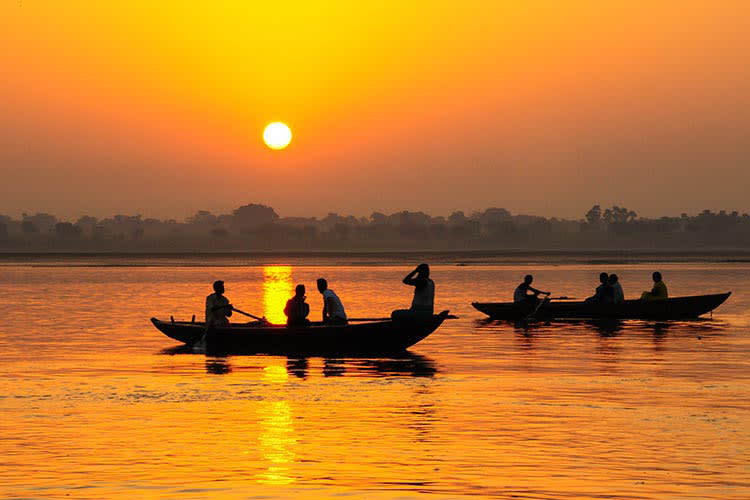
Mayapur
AM & PM: Explore the village of Mayapur, the headquarters of the ISKCON movement with a new temple comparable in size to the Vatican and largely funded by Alfred B. Ford, the great grandson of car maker Henry Ford. Meet Krishna followers and walk through the pilgrims’ bazaar.
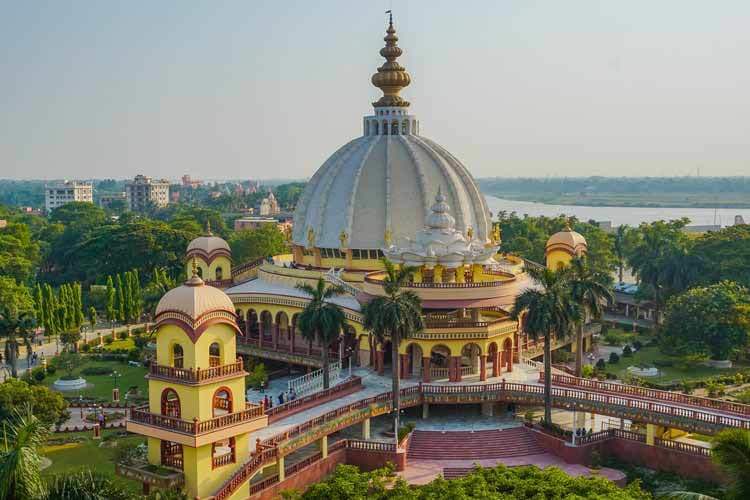
Kalna
AM & PM: After breakfast visit the country town of Kalna. Take rickshaws to see a group of some of Bengal’s most attractive terracotta temples, as well as the unique Shiva temple with concentric rings made up of 108 lesser shrines.
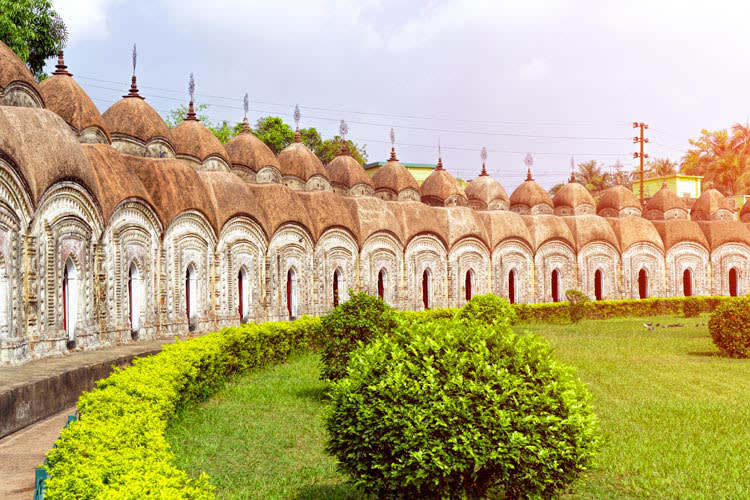
Chandernagore
AM: Continue sailing upstream to Chandernagore, a French possession until 1950. Visit the 18th century church and Dupleix’s House, erstwhile Governor-General of French India.
PM: In the afternoon we sail toward Barrackpore and take a walk through the cantonment - past the Semaphore Tower, Government House, the Temple of Fame and Flagstaff House. Enjoy a farewell dinner with your crew as we moor in Kolkata for the night.
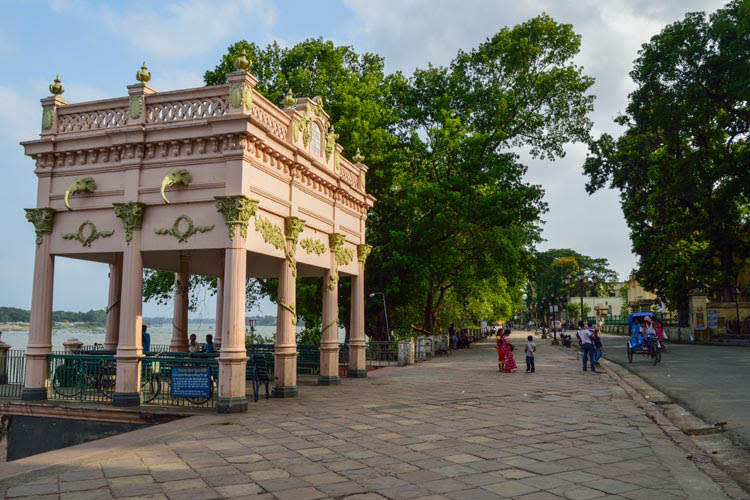
Kolkata - Guwahati
AM: Disembark the ship at 08:00 and transfer to the airport for your flight to Guwahati.
PM: On arrival transfer to ship and meet your crew for the next 7-nights and set sail upstream onto the Mighty Brahmaputra River.
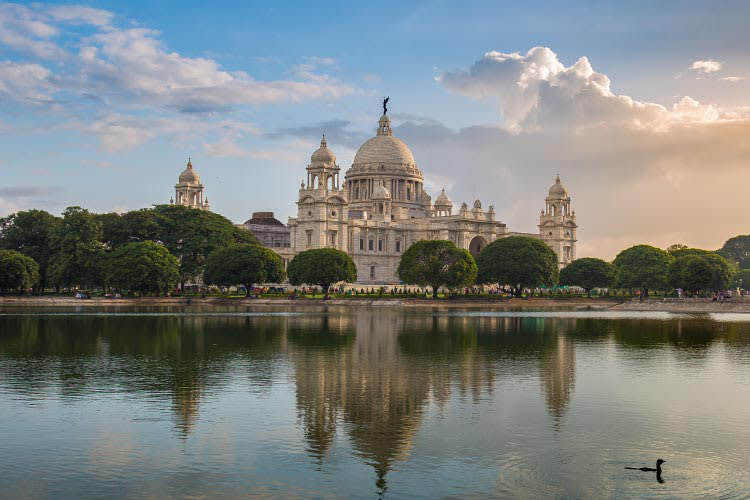
Sutargaon River Village
AM & PM: Today we stop at a local village consisting of migrant populations that have settled and been provided with official status by the government. Their charming village is the perfect place to learn about life along such a dramatically changeable river.
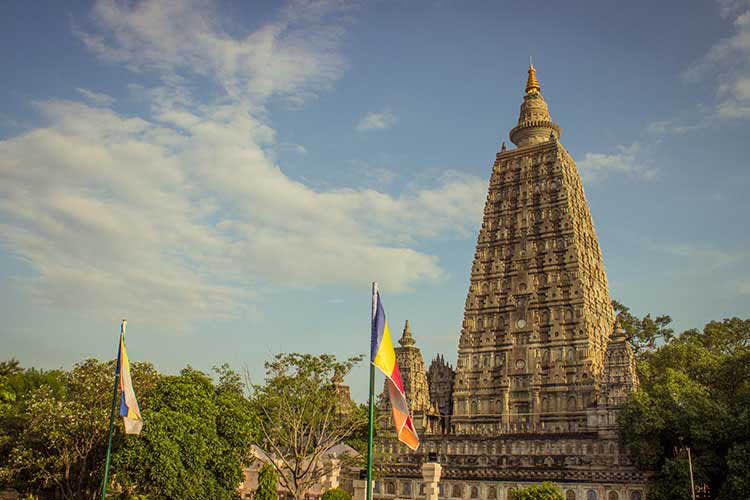
Silghat & Safari
AM: Setting sail early morning we reach Silghat, at the doorstep of Kaziranga National Park.
PM: We make our first venture into this park in the afternoon in search of the reserve’s most famous inhabitant, the Royal Bengal Tigers for which the park boasts the highest density of any place in the world. Tiger spotting is extremely rare but chances to see Kaziranga’s other famous inhabitants are abundant.
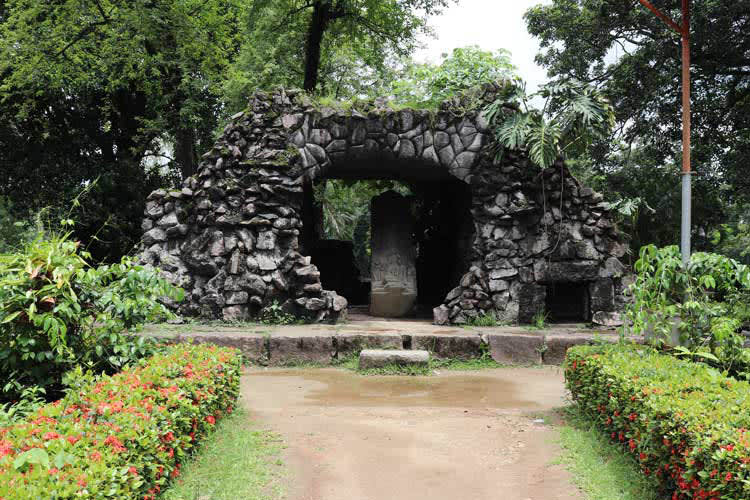
Kaziranga National Park
AM: We leave the ship in the early morning for our second Jeep safari into Kaziranga National Park. Mornings are the perfect time to spot the Indian One-Horned Rhinos, Buffalos, Elephants plus a host of birdlife, including hornbills and kingfishers. Following your safari, we visit a typical Assamese tea garden and learn about the process from bush to cup.
PM: After lunch onboard we sail downstream toward Tezpur and if time permits, visit Bamuni Hills, a 9th century temple complex that lies in ruins overlooking the town.
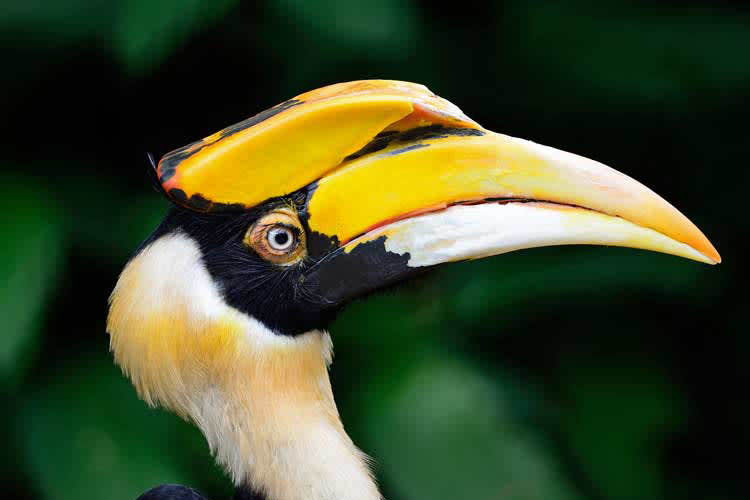
Nameri National Park
AM: After an early breakfast we head ashore and drive north toward the state of Arunachal Pradesh to explore our second national Park – Nameri National Park. Here we take a float trip down the Jia – Bhoreli River of around 2 hours and enjoy the abundant birdlife and breathtaking scenery backdropped by the Blue Hills in the Eastern Himalayan range.
PM: We return for lunch onboard and set sail downstream.

Mystical Mayang
AM & PM: Stepping ashore in Mayang, a sizeable village along the shores of the Brahmaputra, we learn about the history of magic and sorcery that was prevalent in the region. We visit the fascinating Mayang museum which explains how various mantras were used for anything from curing ailments to identifying a thief. We are then welcomed into the home of a local Mayang resident for a discussion and perhaps demonstration of some tricks.

Sualkuchi Silk Village
AM & PM: Sualkuchi is a major centre for weaving in Assam. Here we learn about the entire silk making production from the cocoon, to spinning and weaving to make the typical saree worn by local women. There is a chance to buy some local silken souvenirs and experience a traditional folk dance before we return to the ship by electric rickshaw.
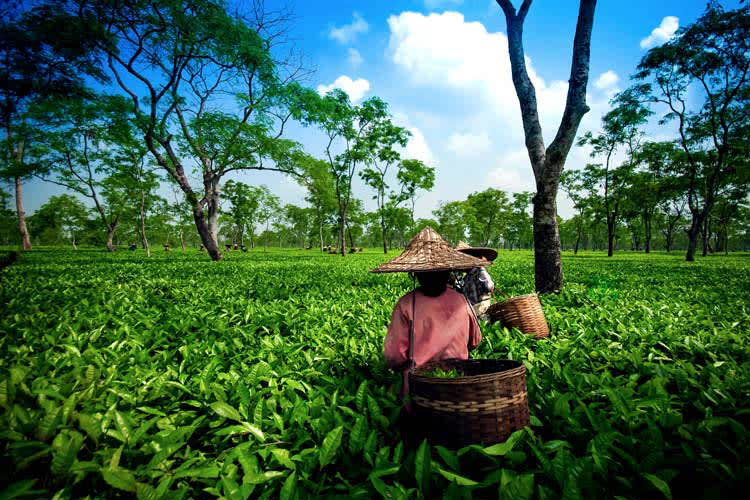
Disembarkation
AM: Disembark after breakfast and transfer to your hotel or Guwahati airport (15km / 30 min). Transfers can be arranged as per your flight details with the latest departure from the ship at 10am.
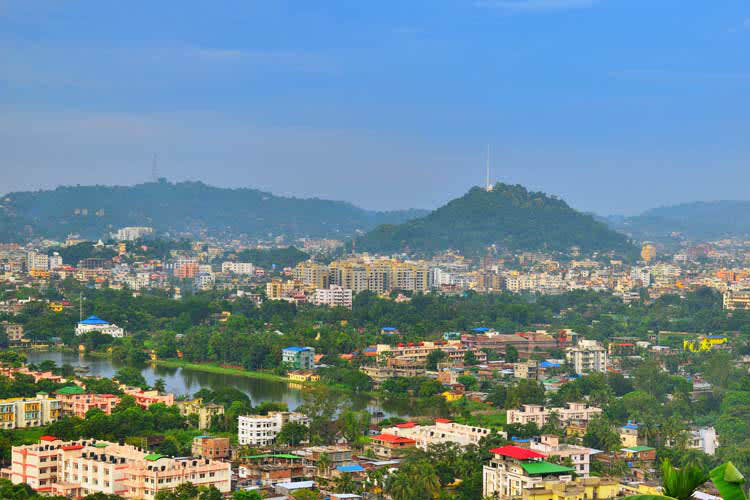
Accommodations
Social Areas
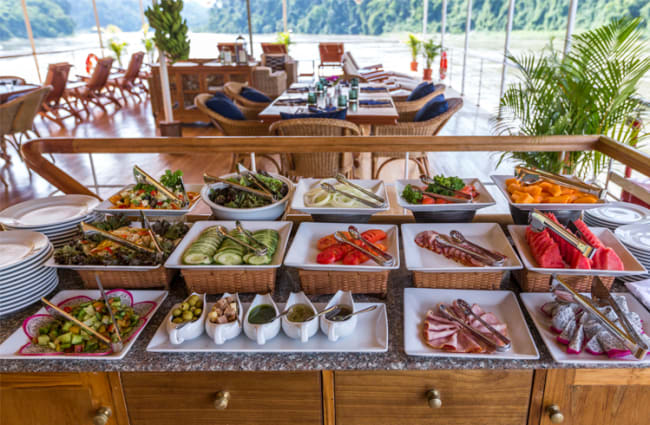
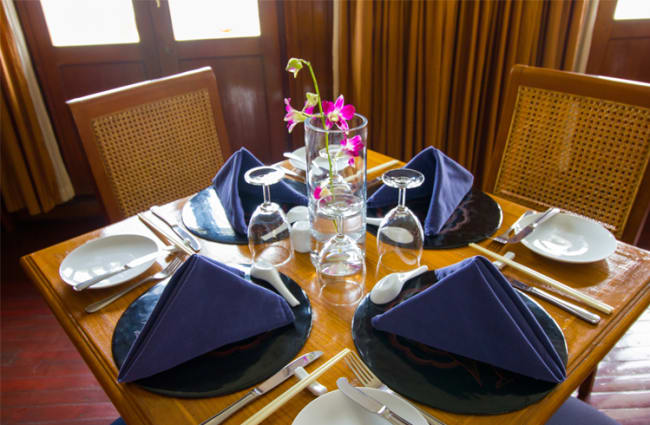
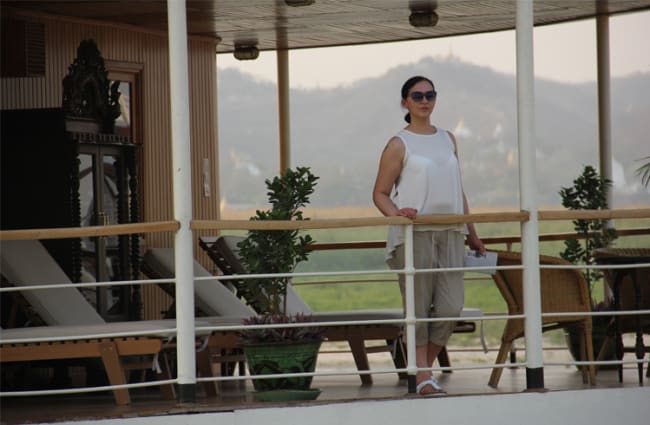
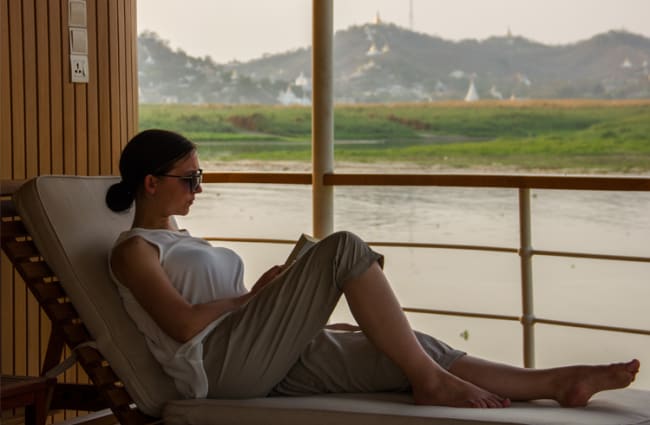
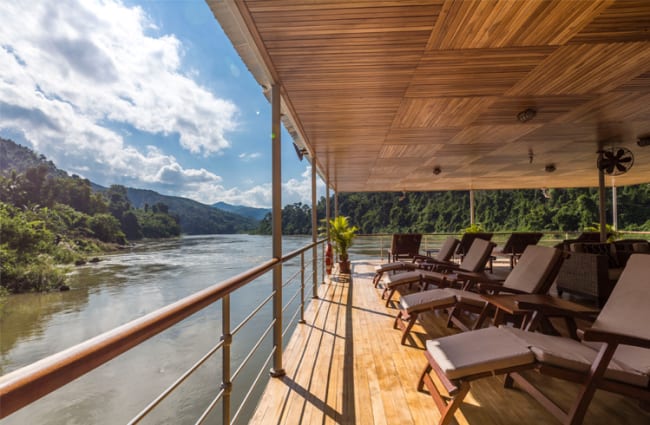
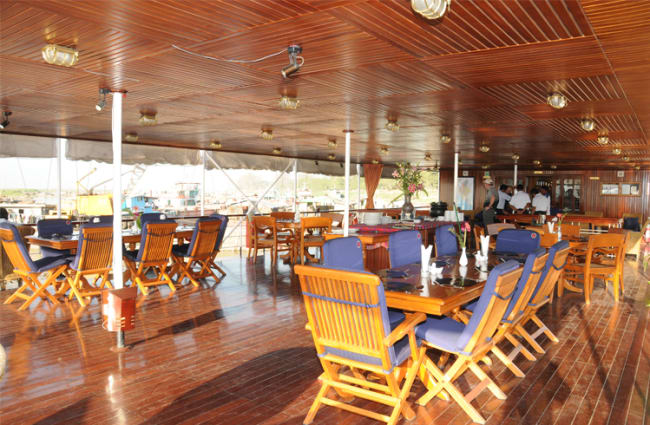
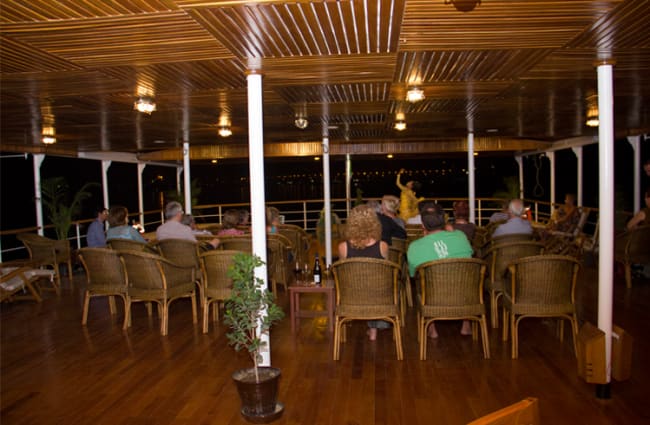
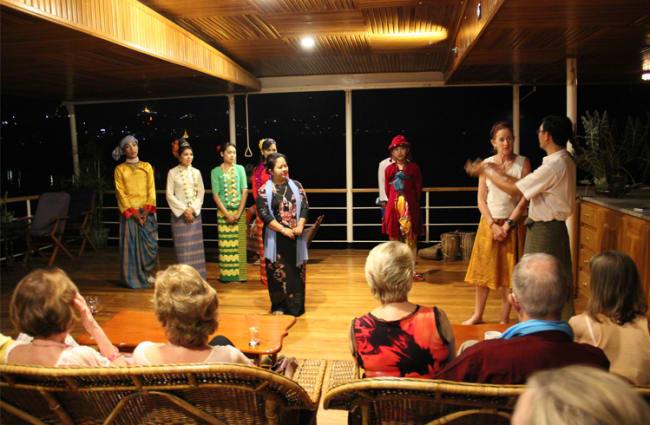
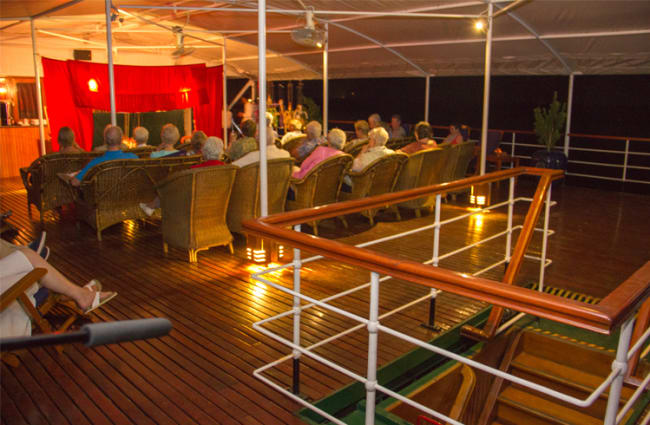
Suites & Cabins
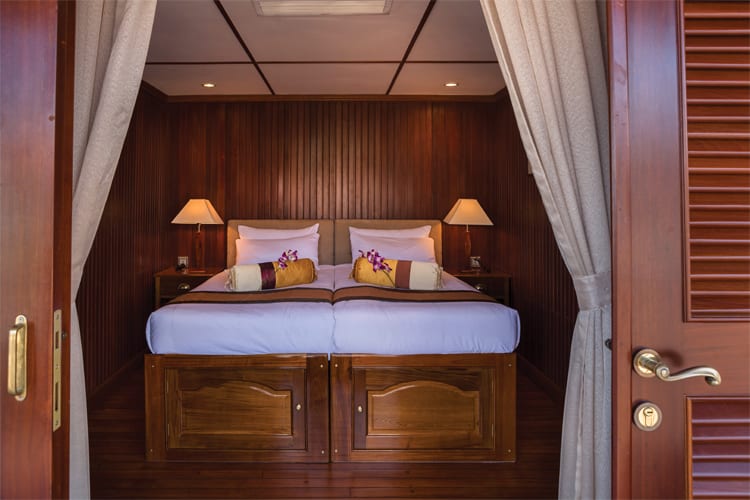
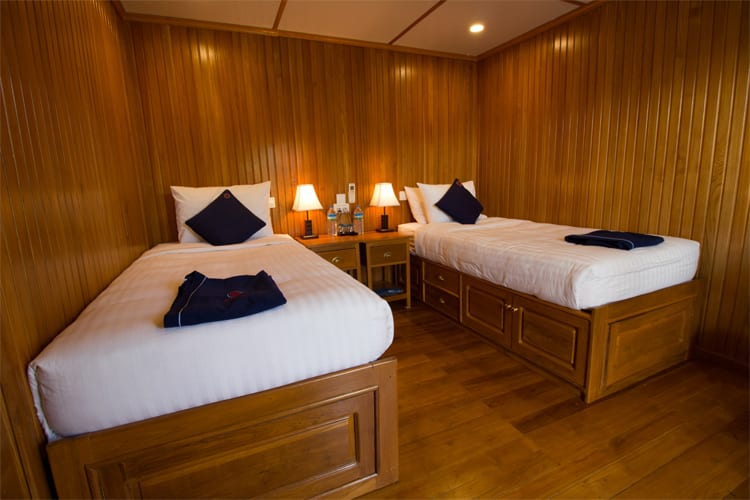
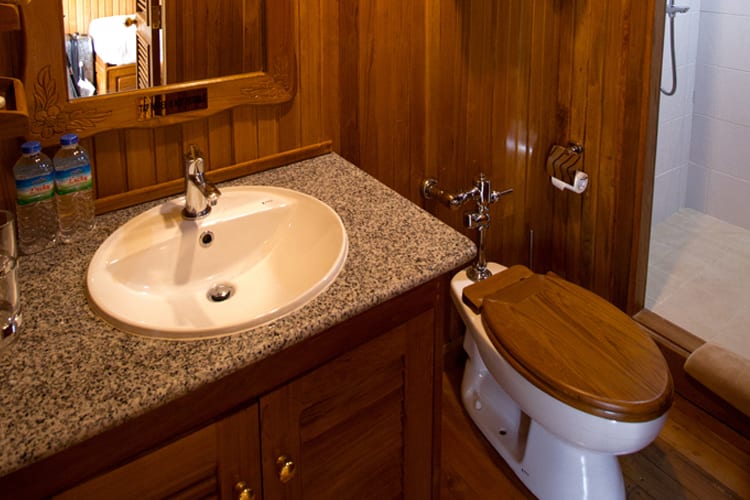
Main Deck
The river level cabins of the Main Deck have been delightfully finished in teak and brass, and feature panoramic French windows and an ensuite bathroom with spa-branded amenities and hairdryer. Inviting beds with premium mattresses and linens are convertible between twin and double as desired.
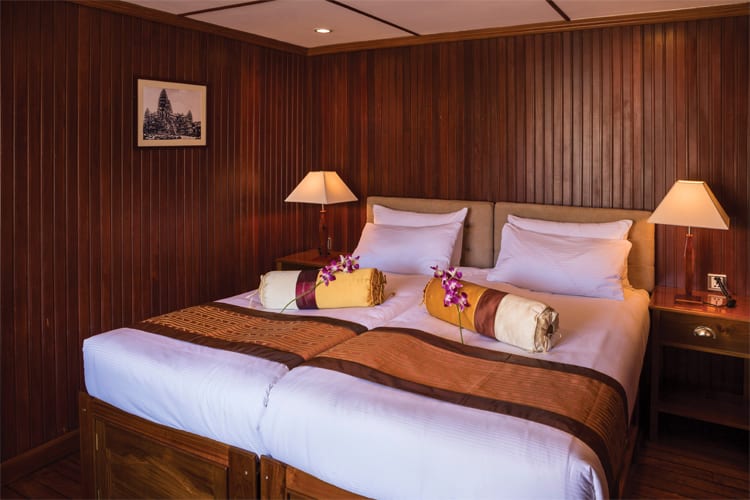
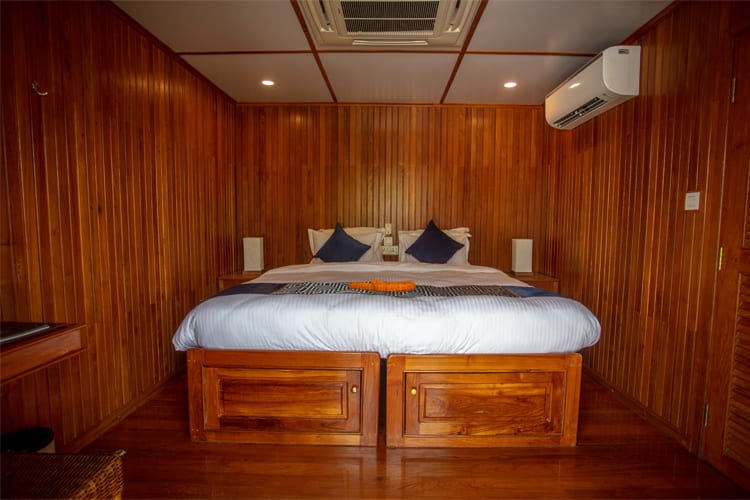
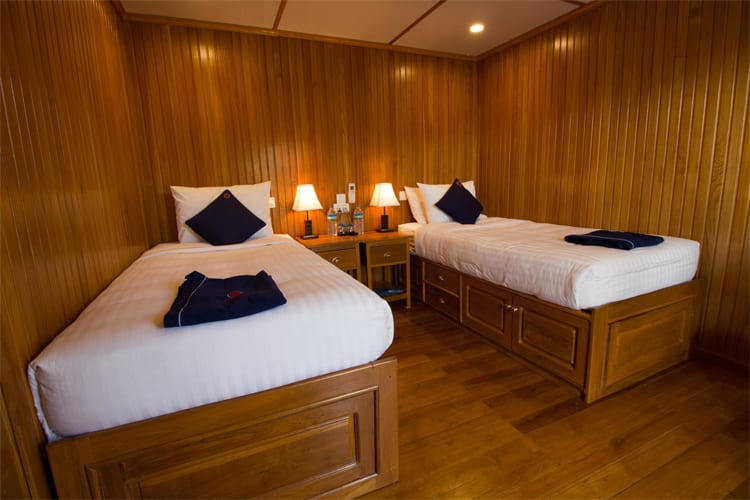
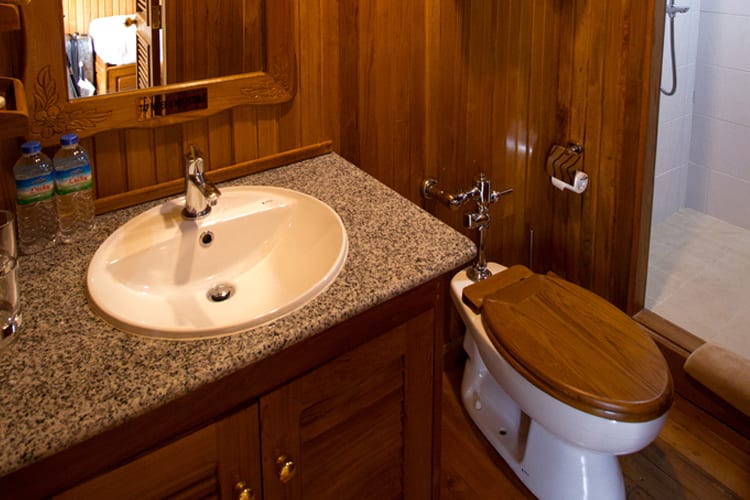
Upper Deck
The Upper Deck cabins are slightly fewer in number but equally spacious and well equipped to ensure guests have a comfortable stay. Whichever cabin you choose, guests can expect air conditioning, kimonos and slippers, an electric mini safe, multi-configuration plugs, and generous closet space and under-bed storage, not to mention unlimited mineral water.
Technical Information
Features
- Air conditioning
- Lecture room
- WIFI available
- Kosher Meals
- Medical staff
- Souvenir shop
- Hot showers
- All inclusive
- Charging areas for electronic equipment
Equipment
- Bicycles
- Yoga mats
- Flash lights
- Water canteen/bottle
- Insect repellent
Related Cruises
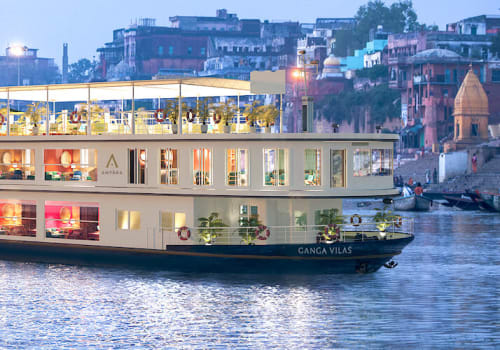
- India
Ganga Vilas
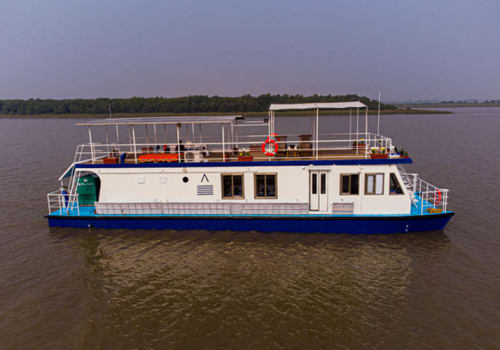
- India
MV Bhitarkanika
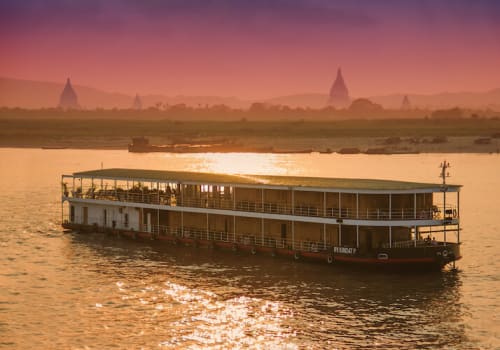
- India
Kindat Pandaw
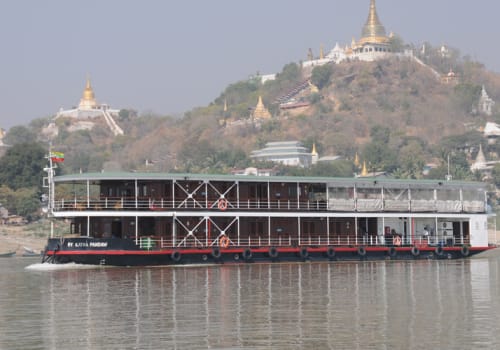
- India
Katha Pandaw

- India
Kochi Pandaw
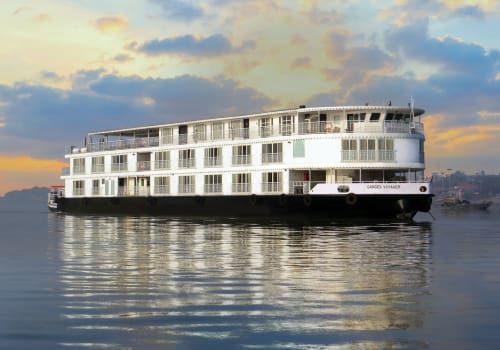
- India
Ganges Voyager
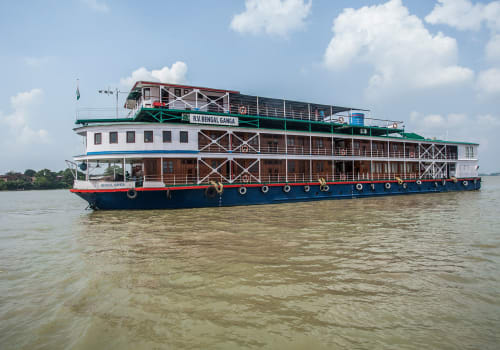
- India


